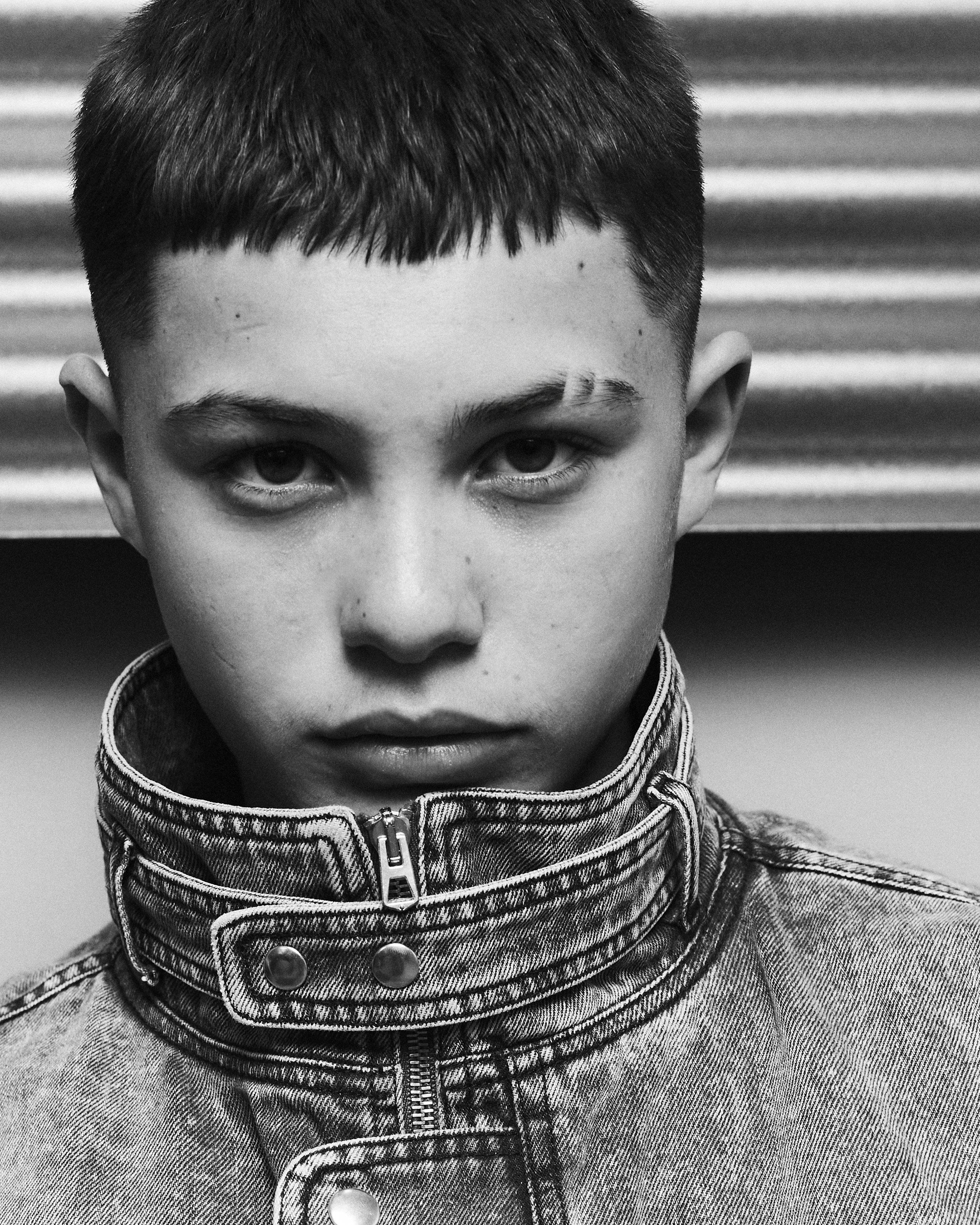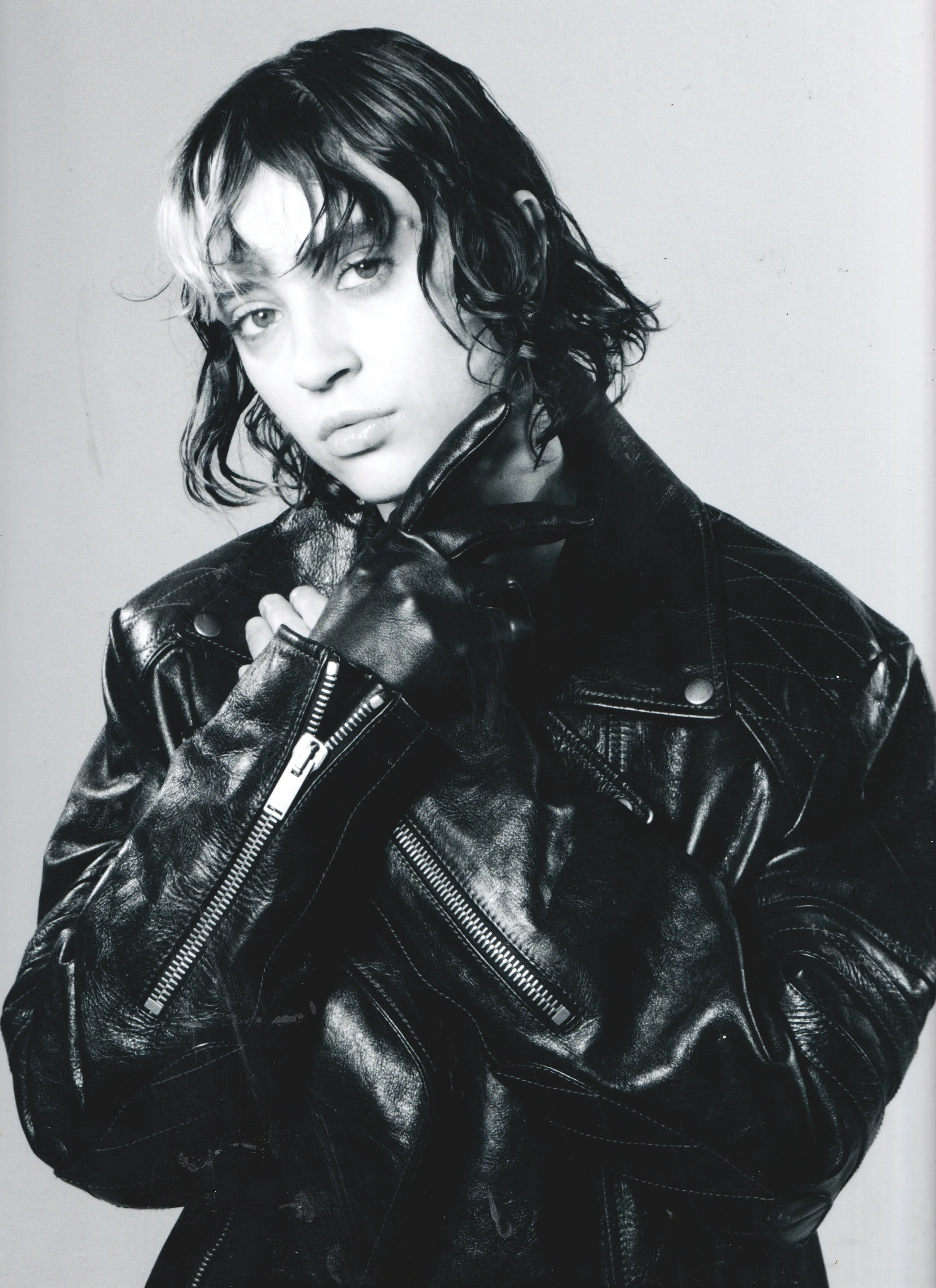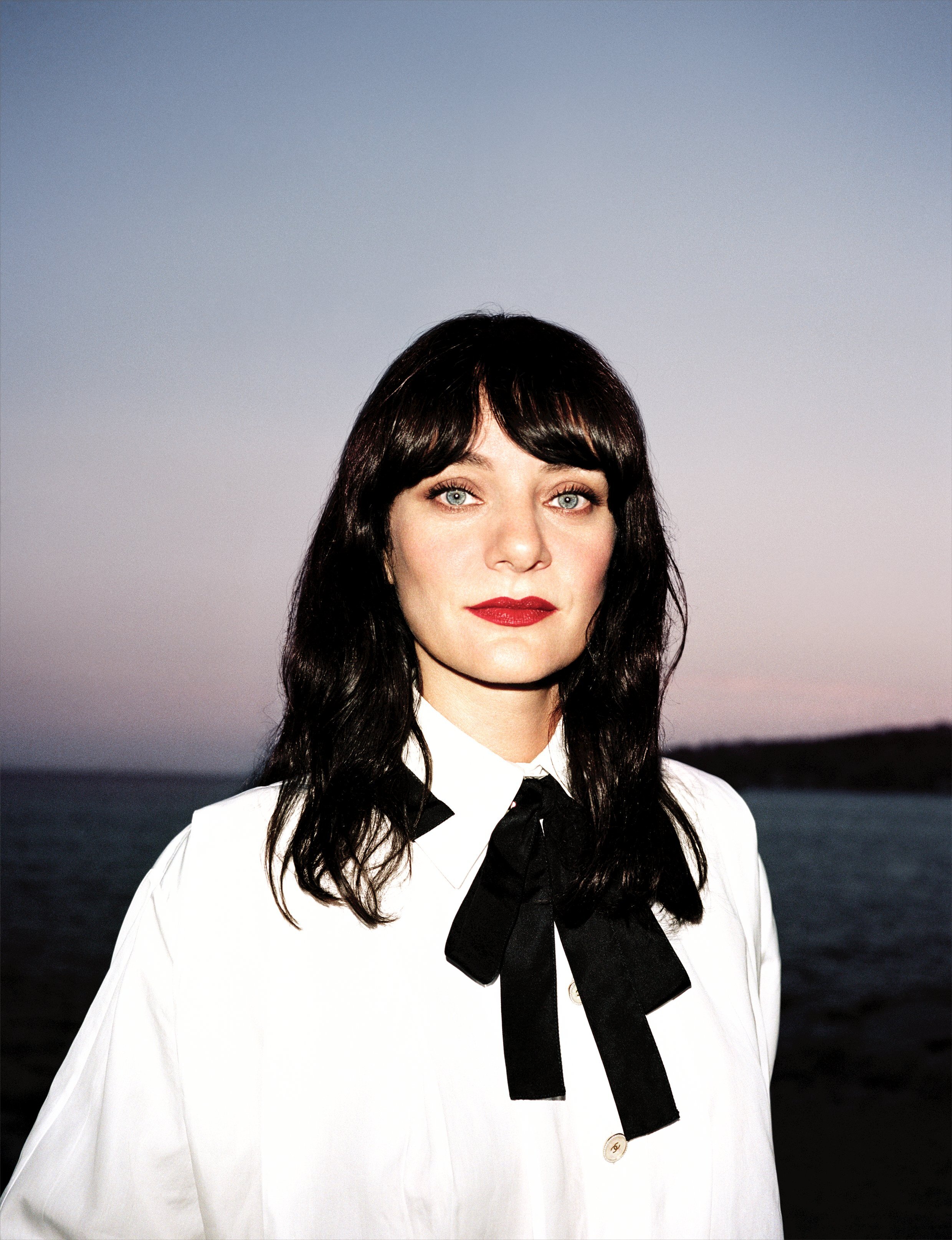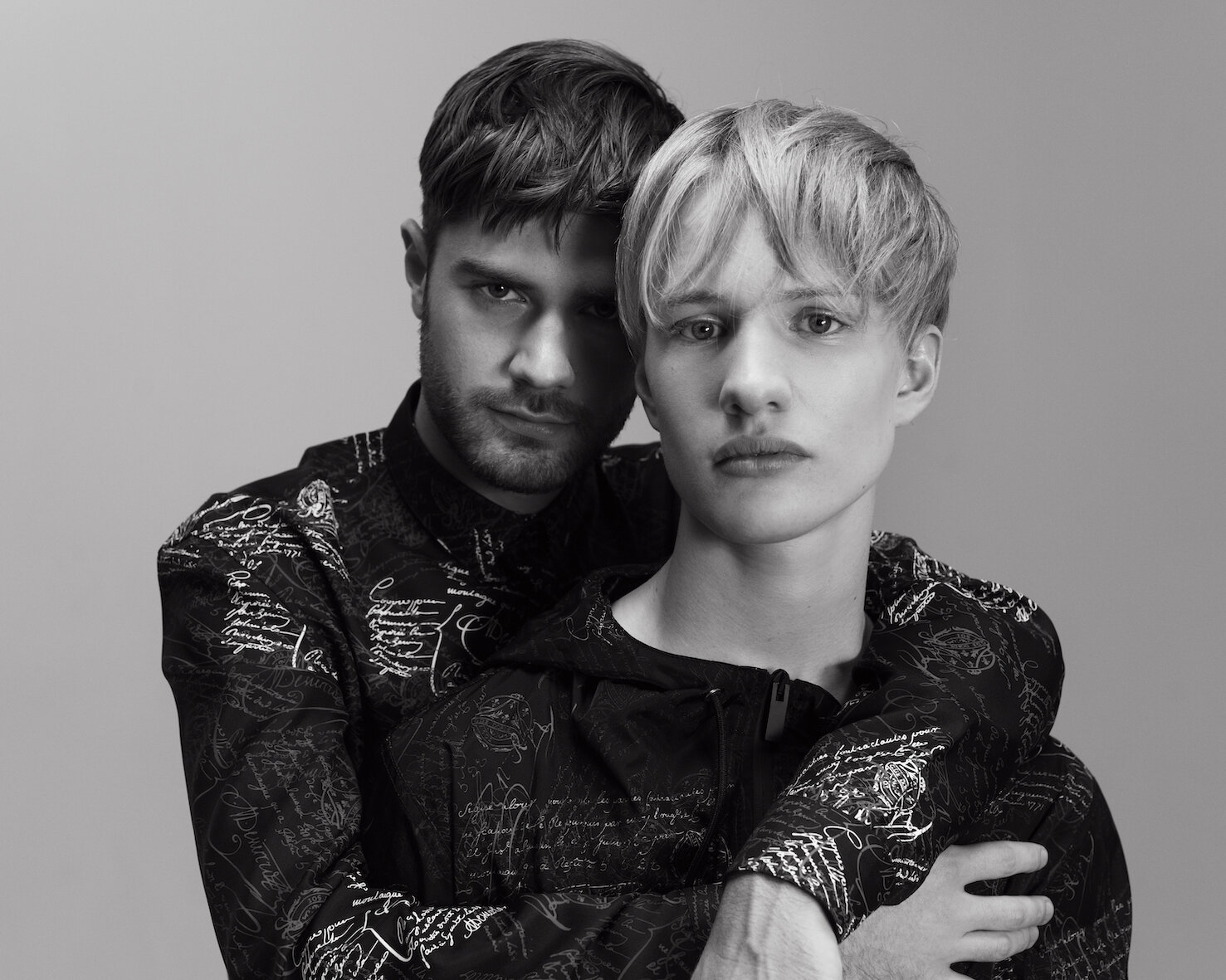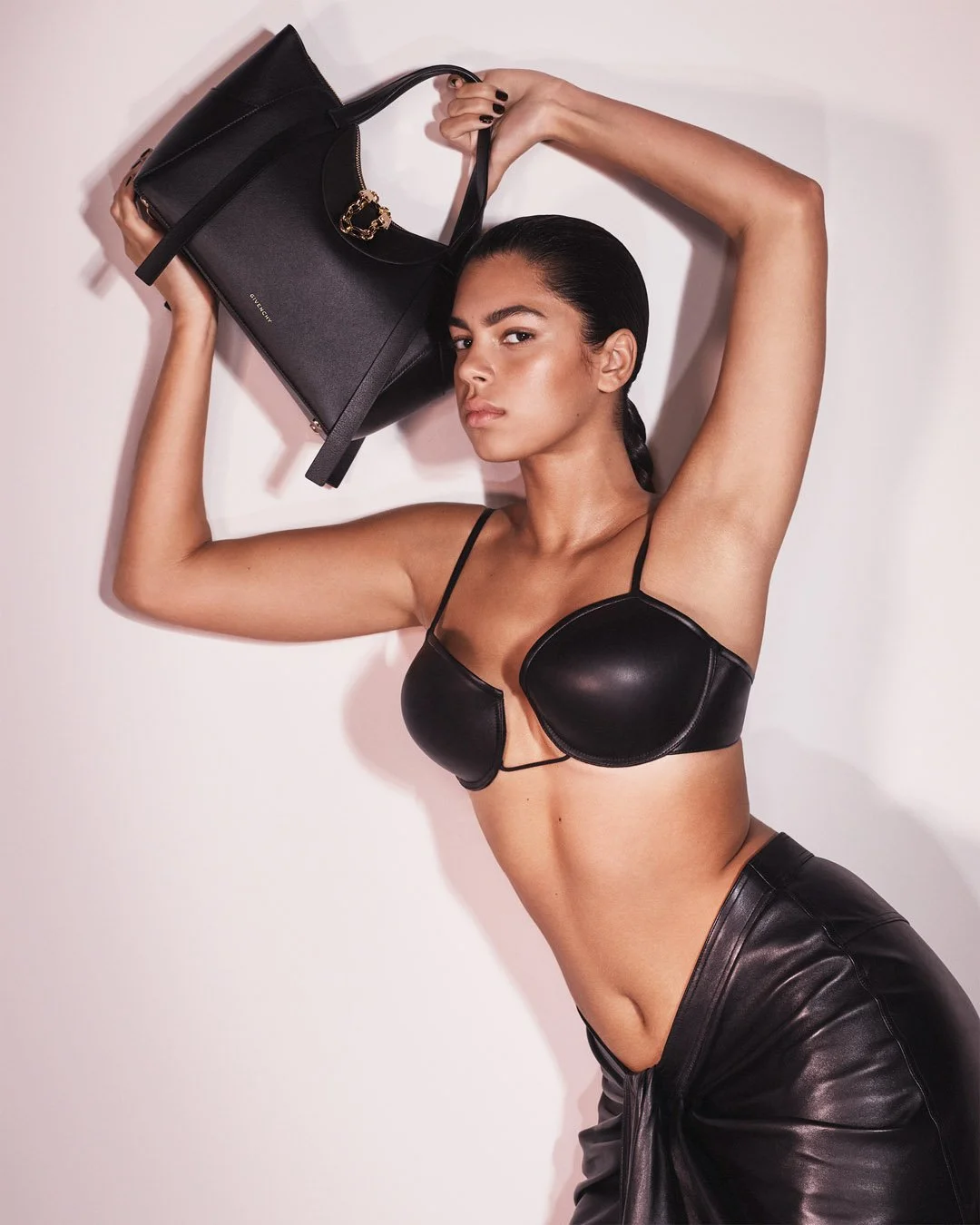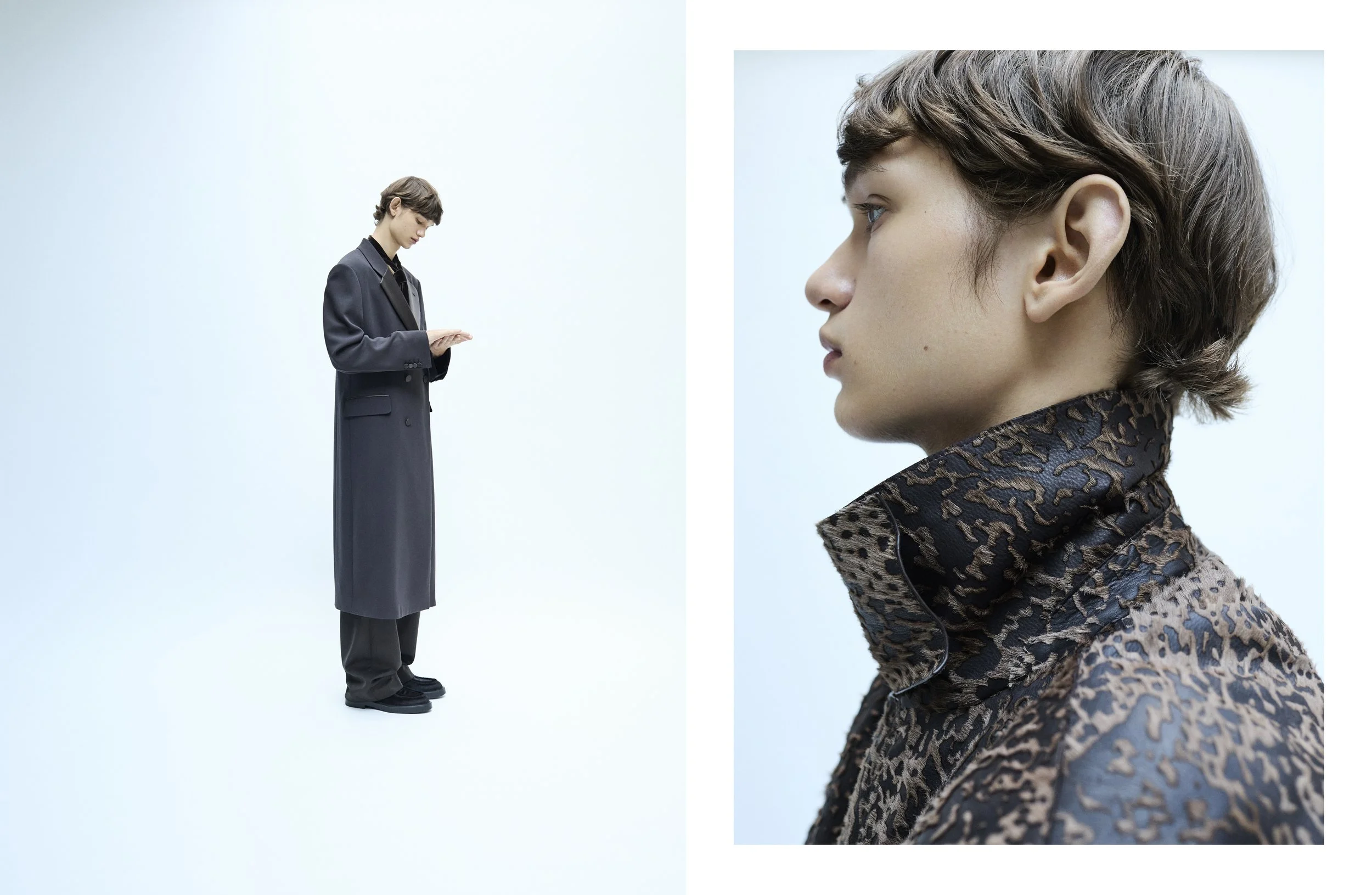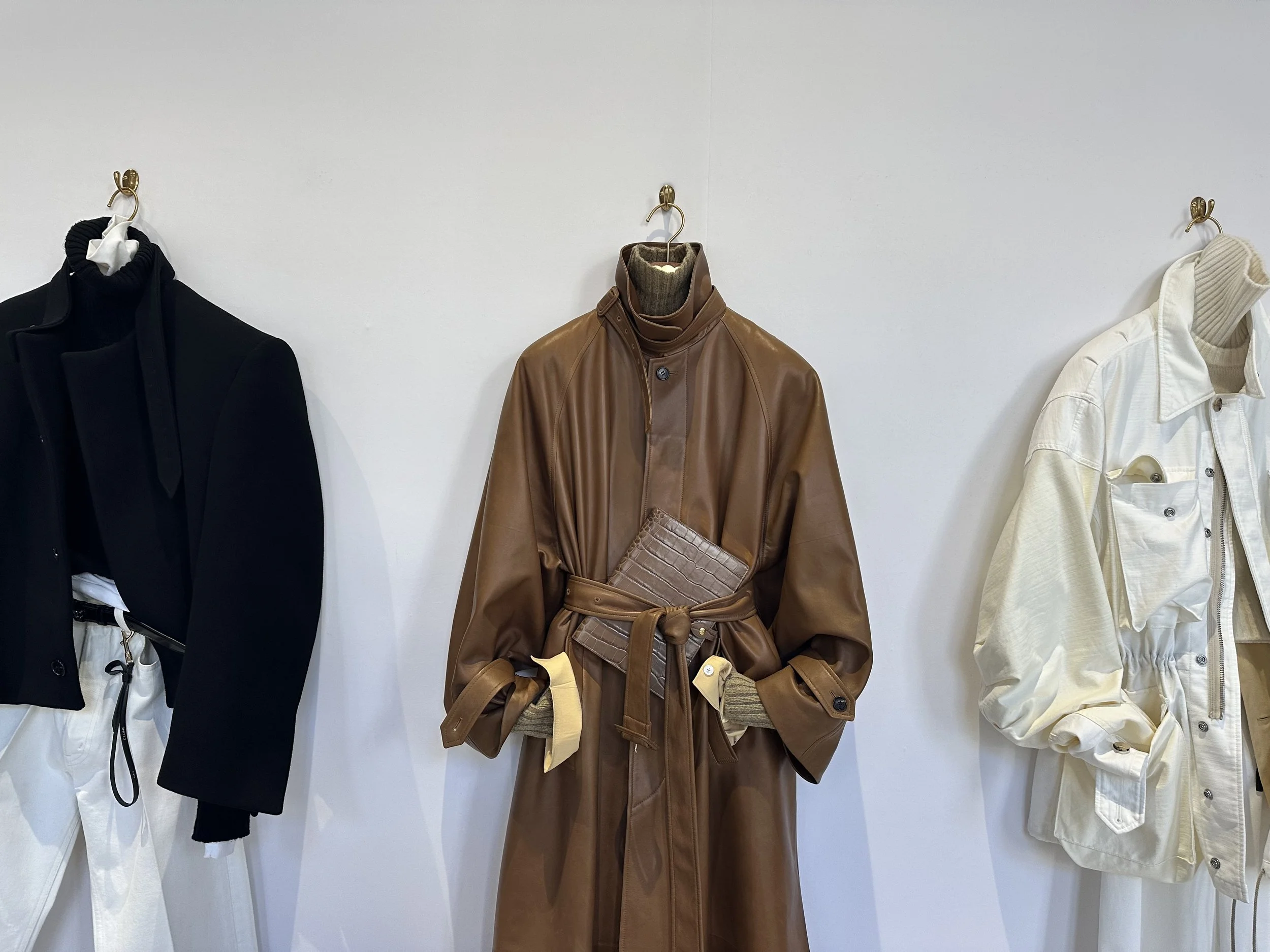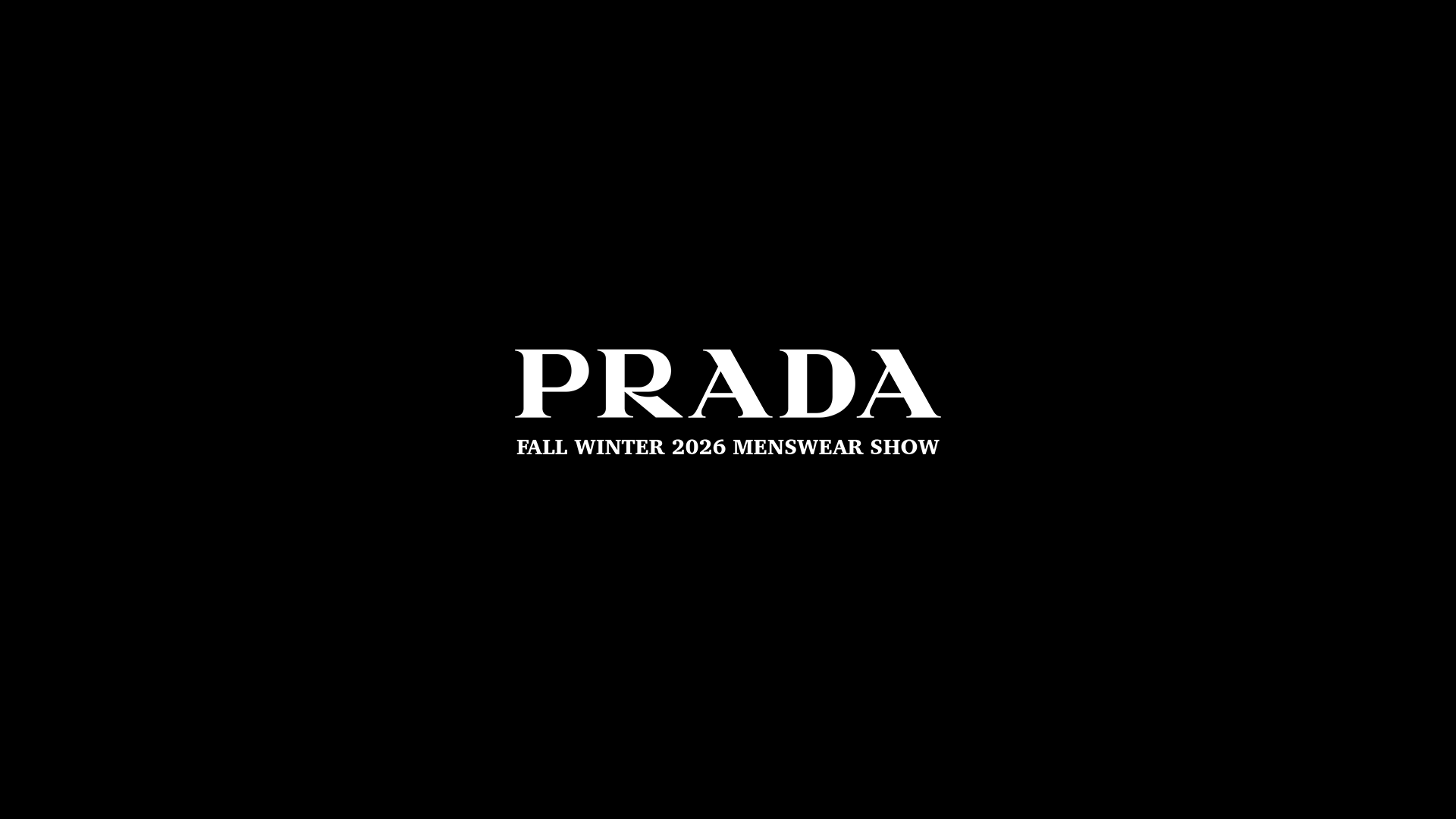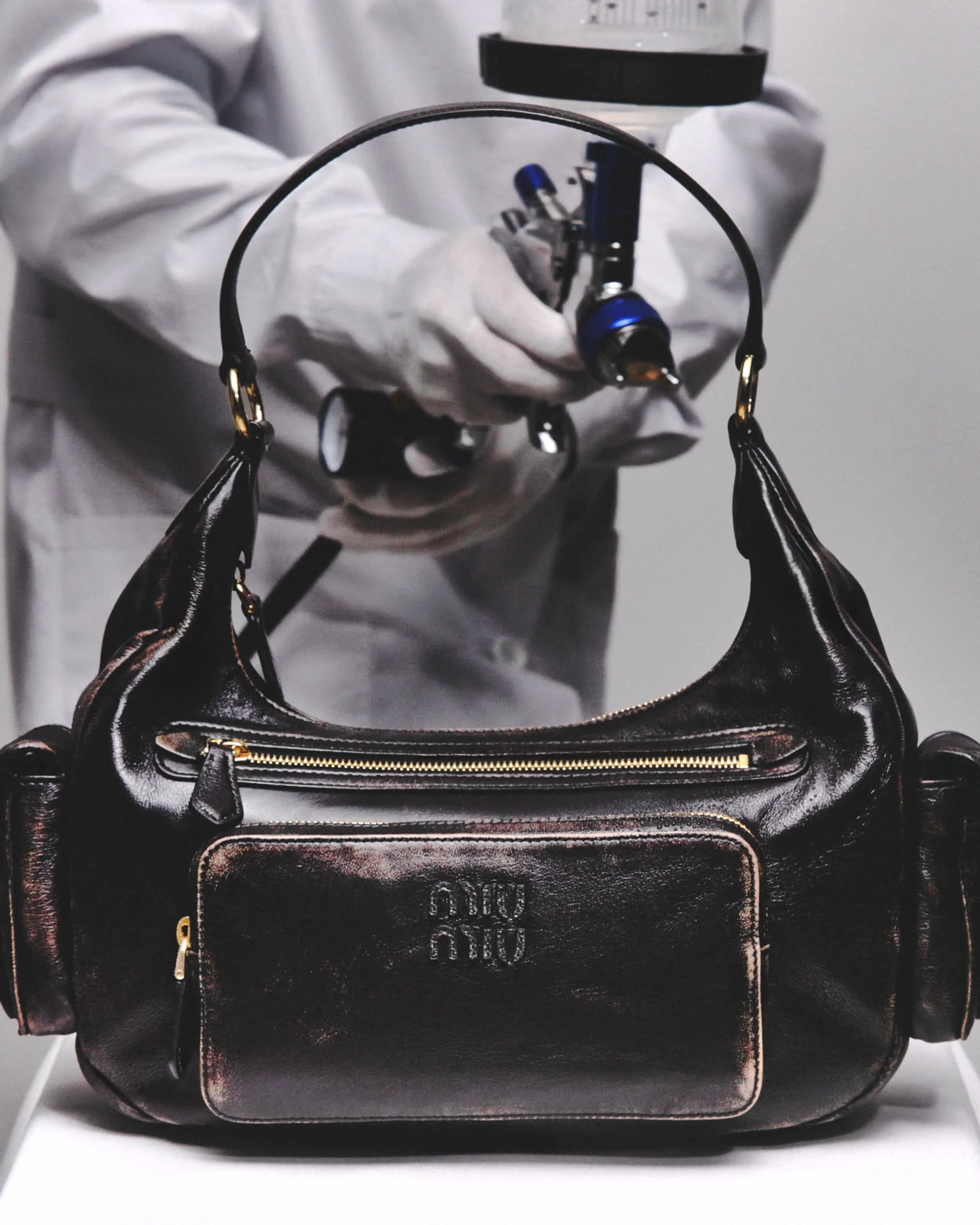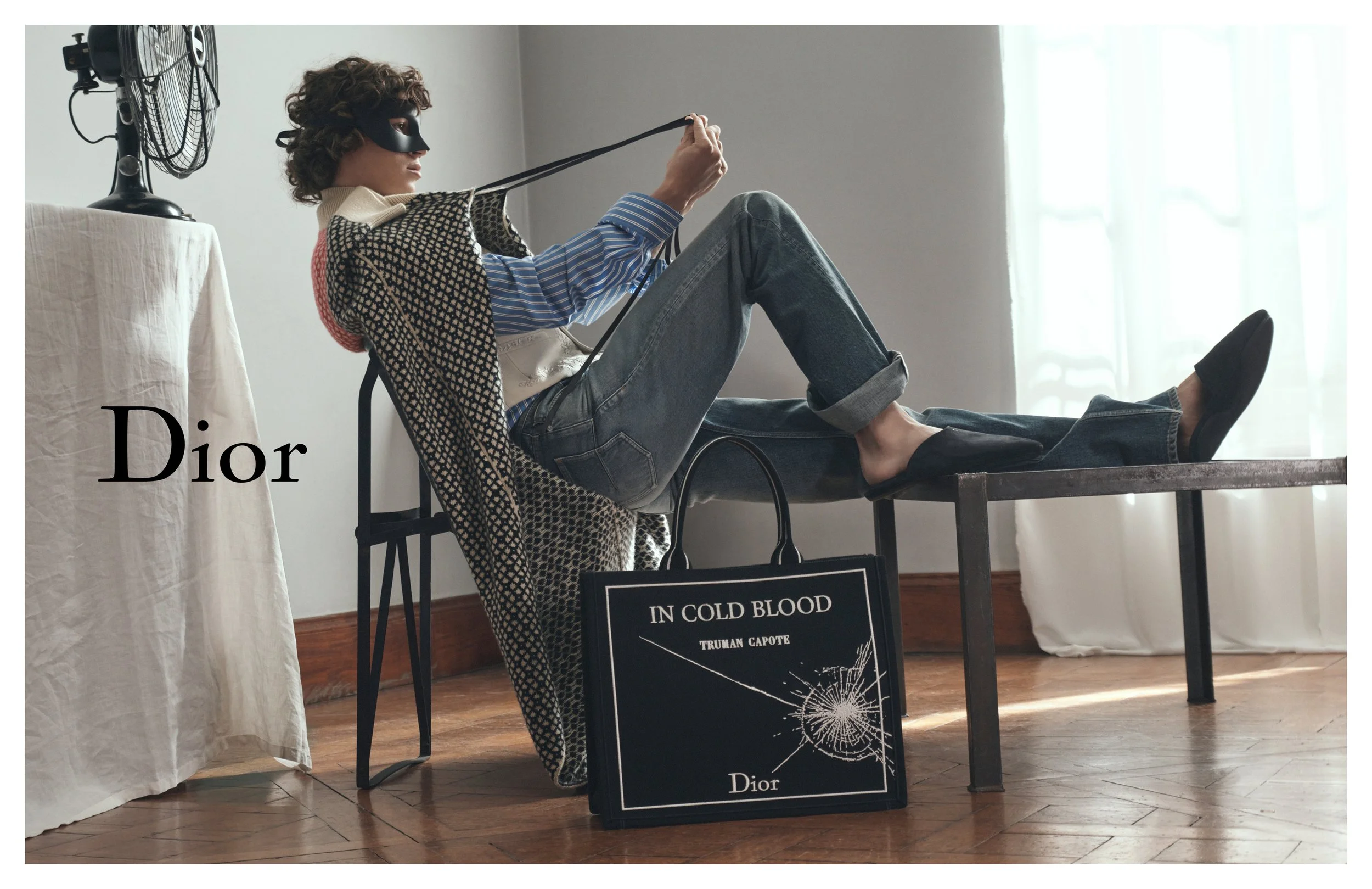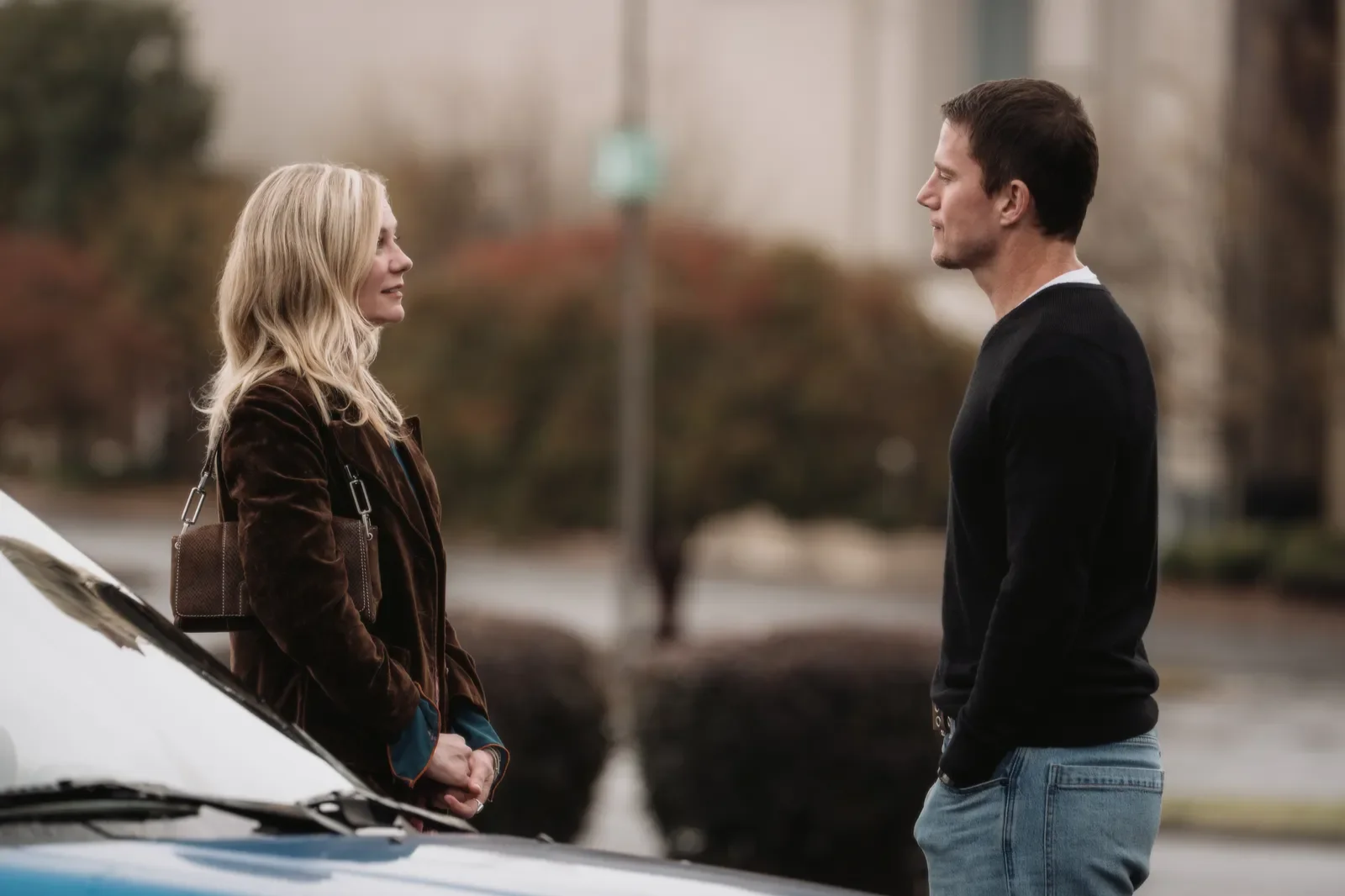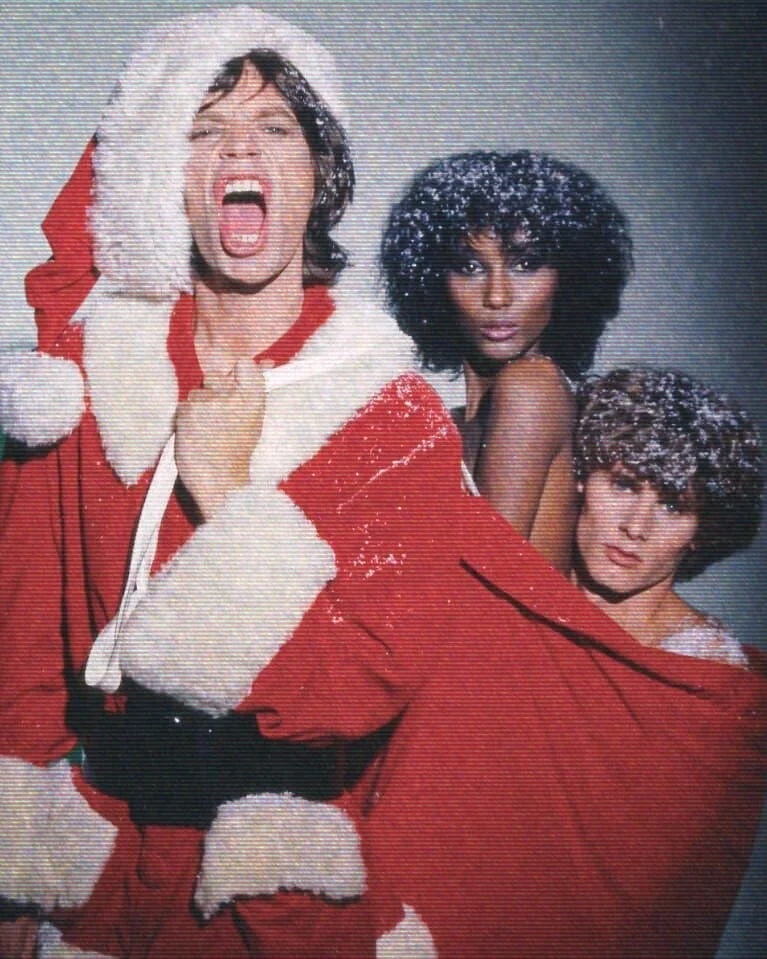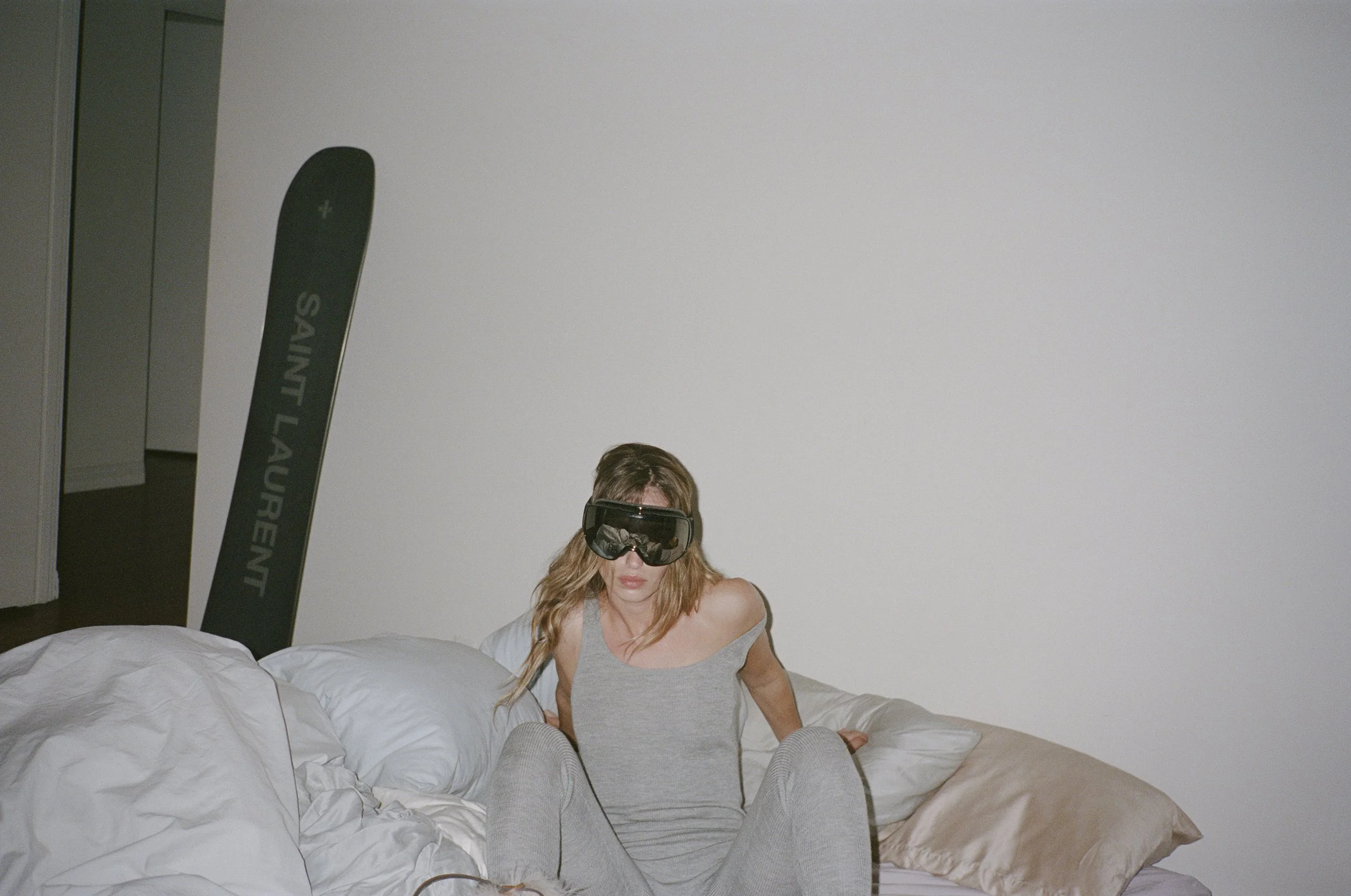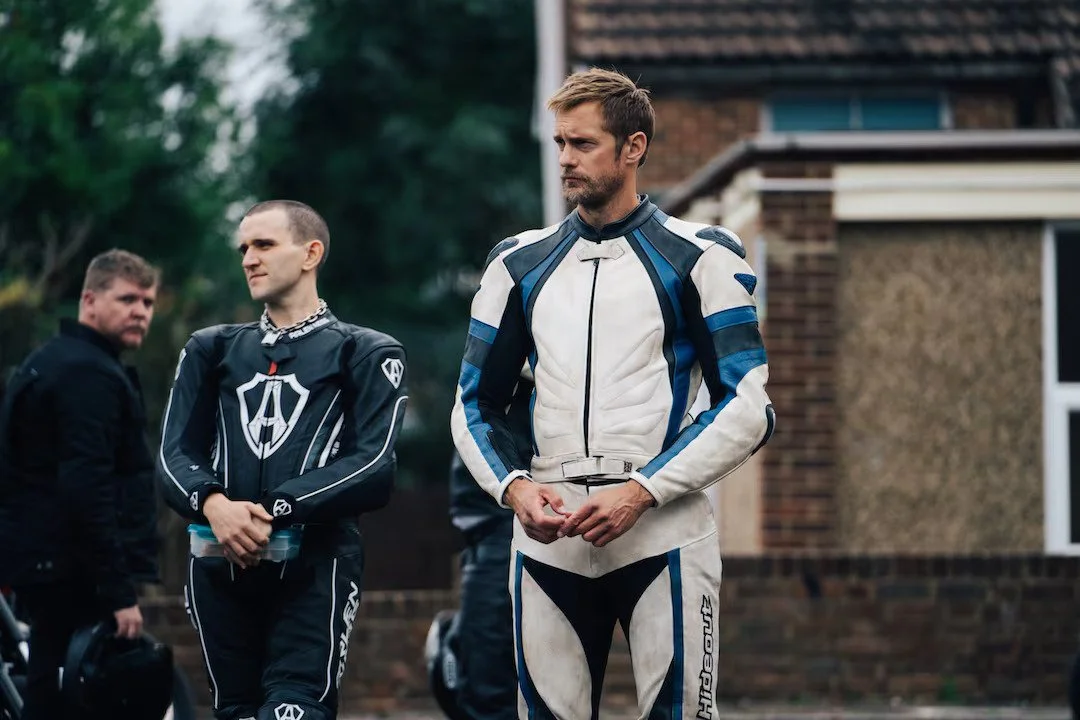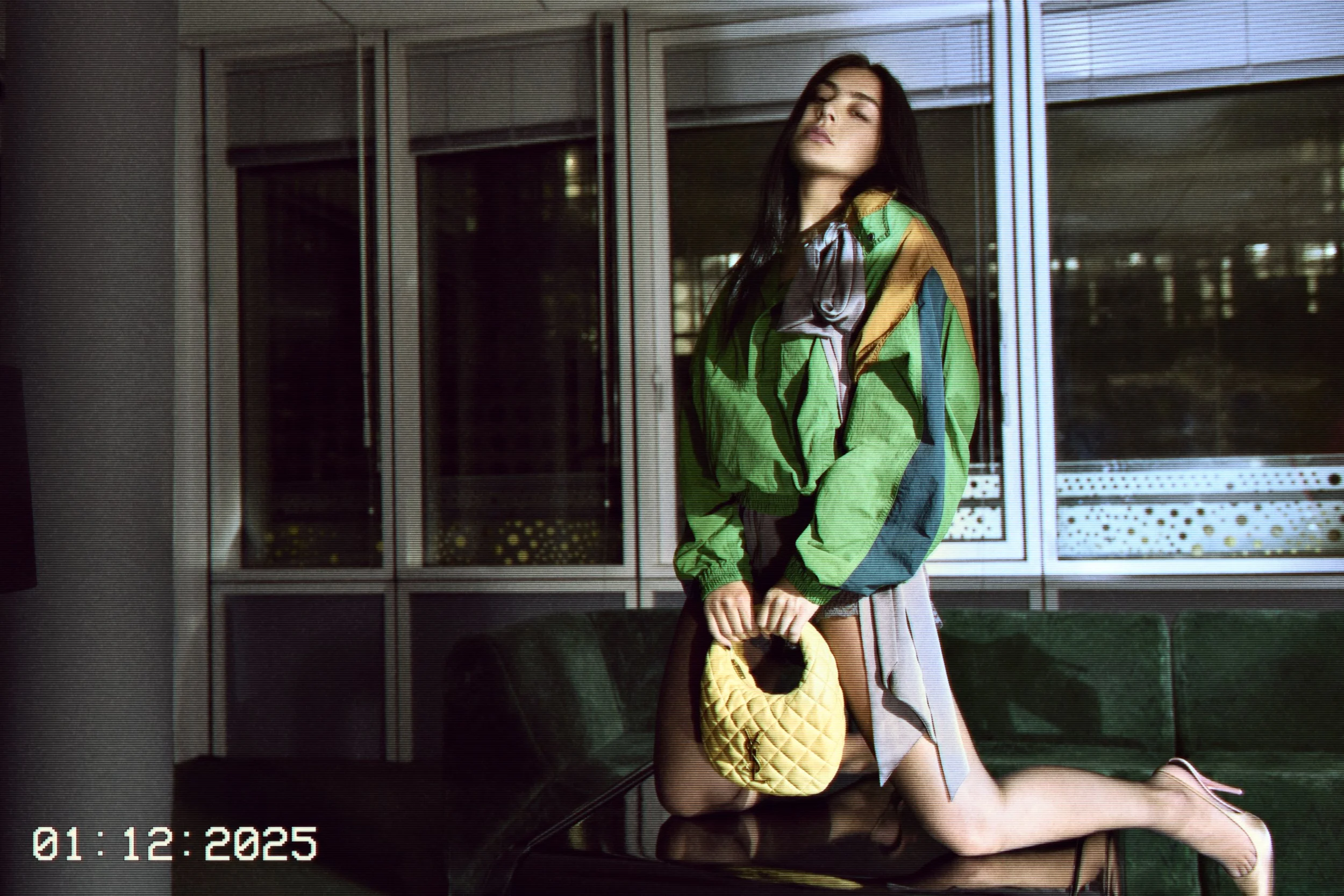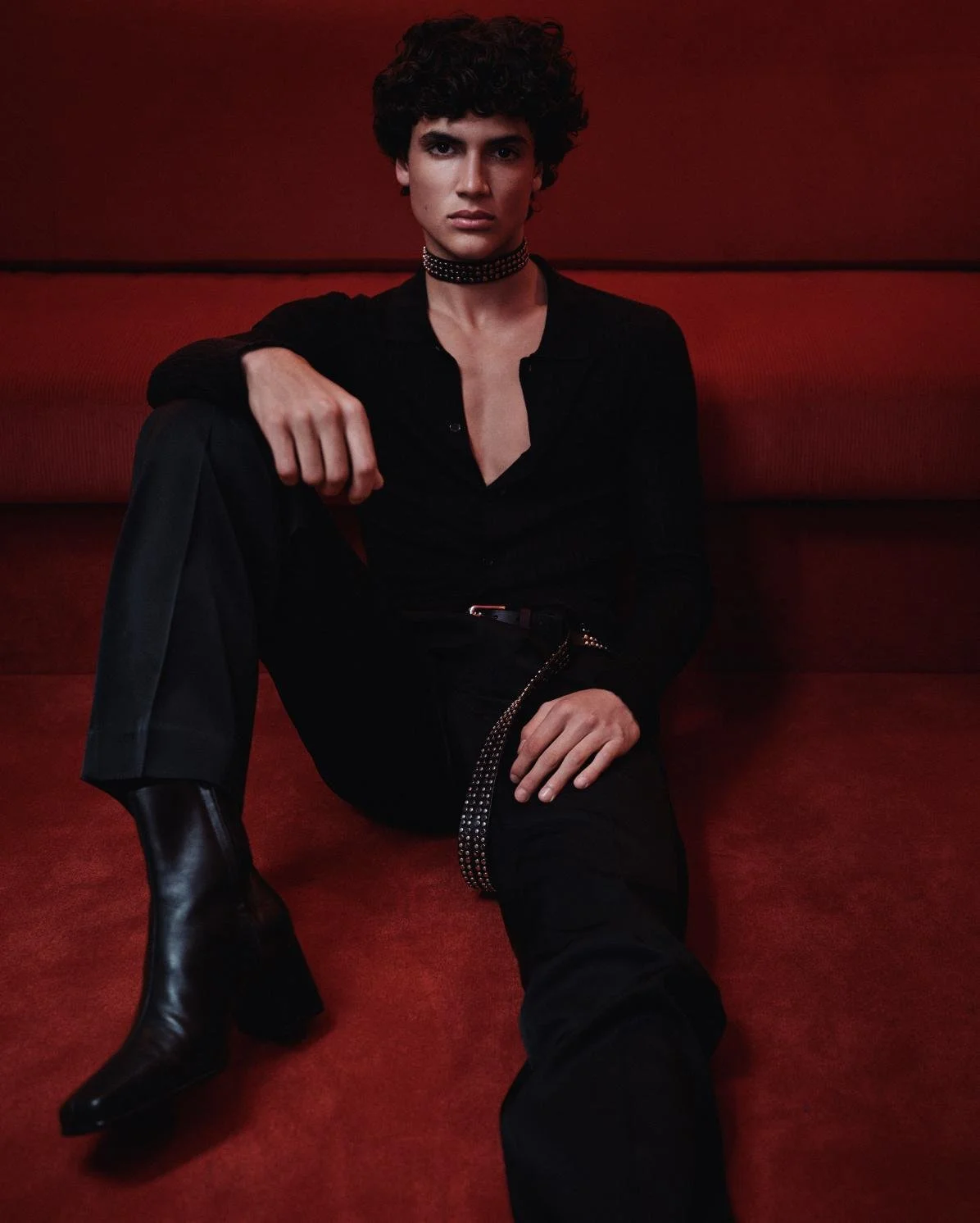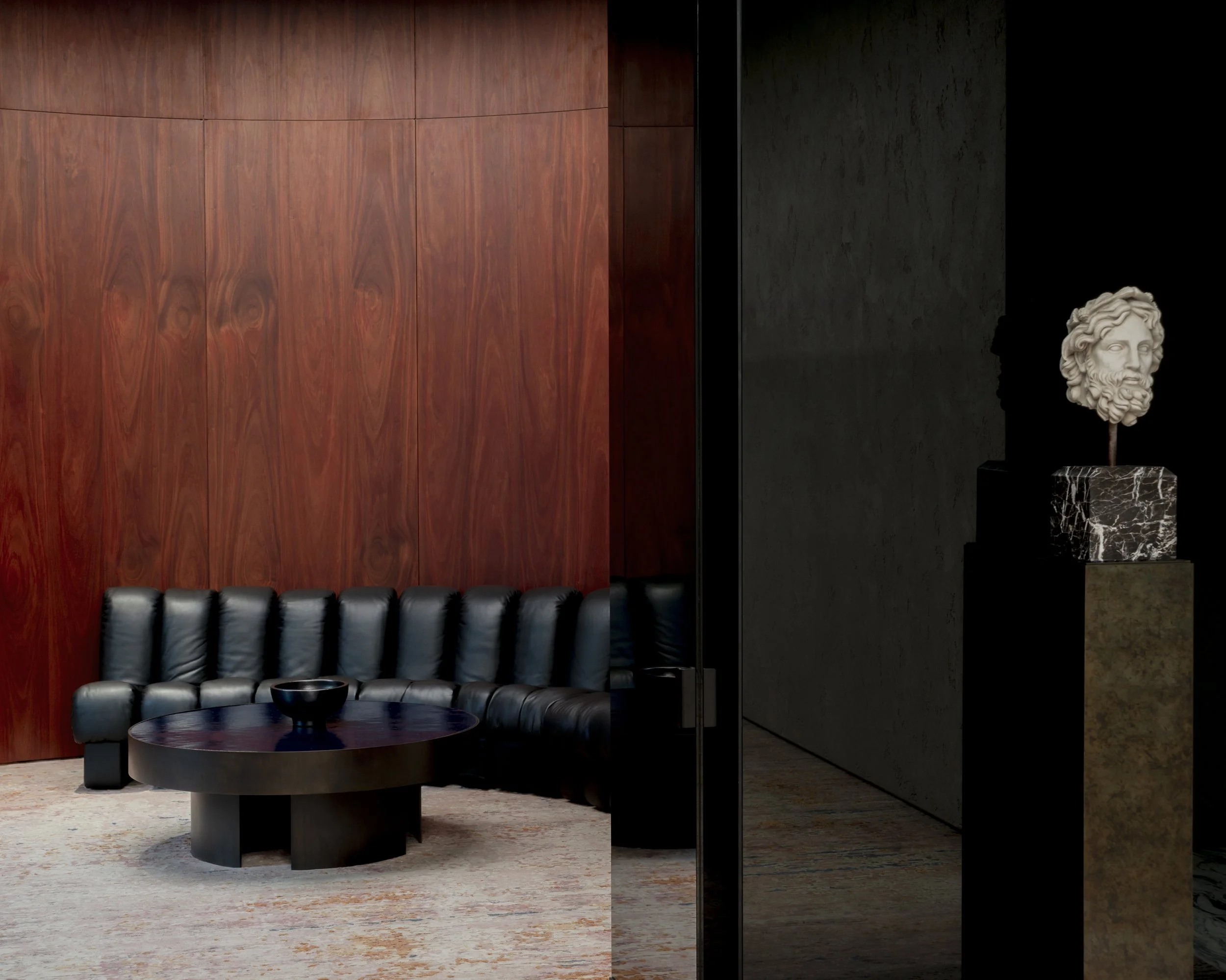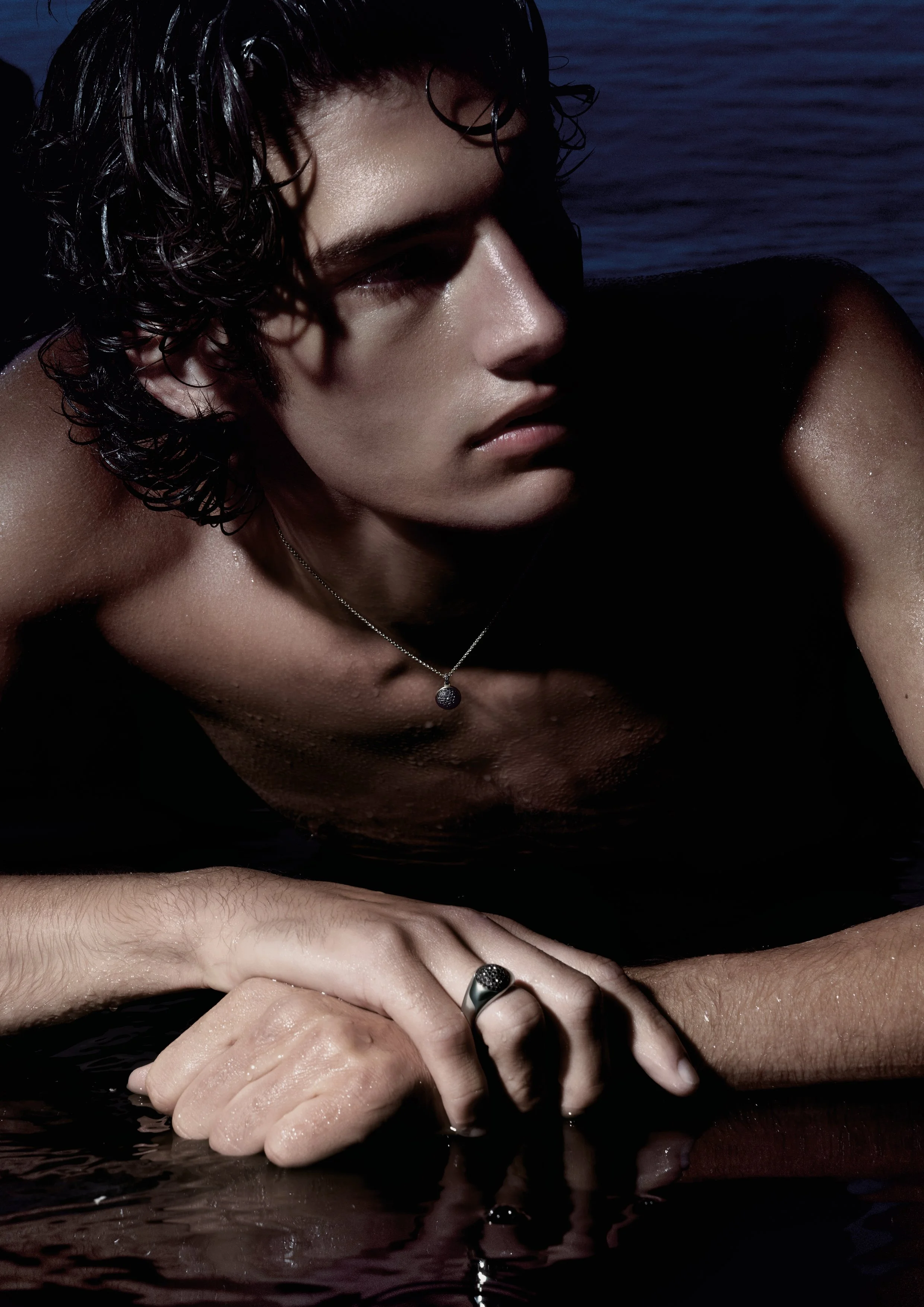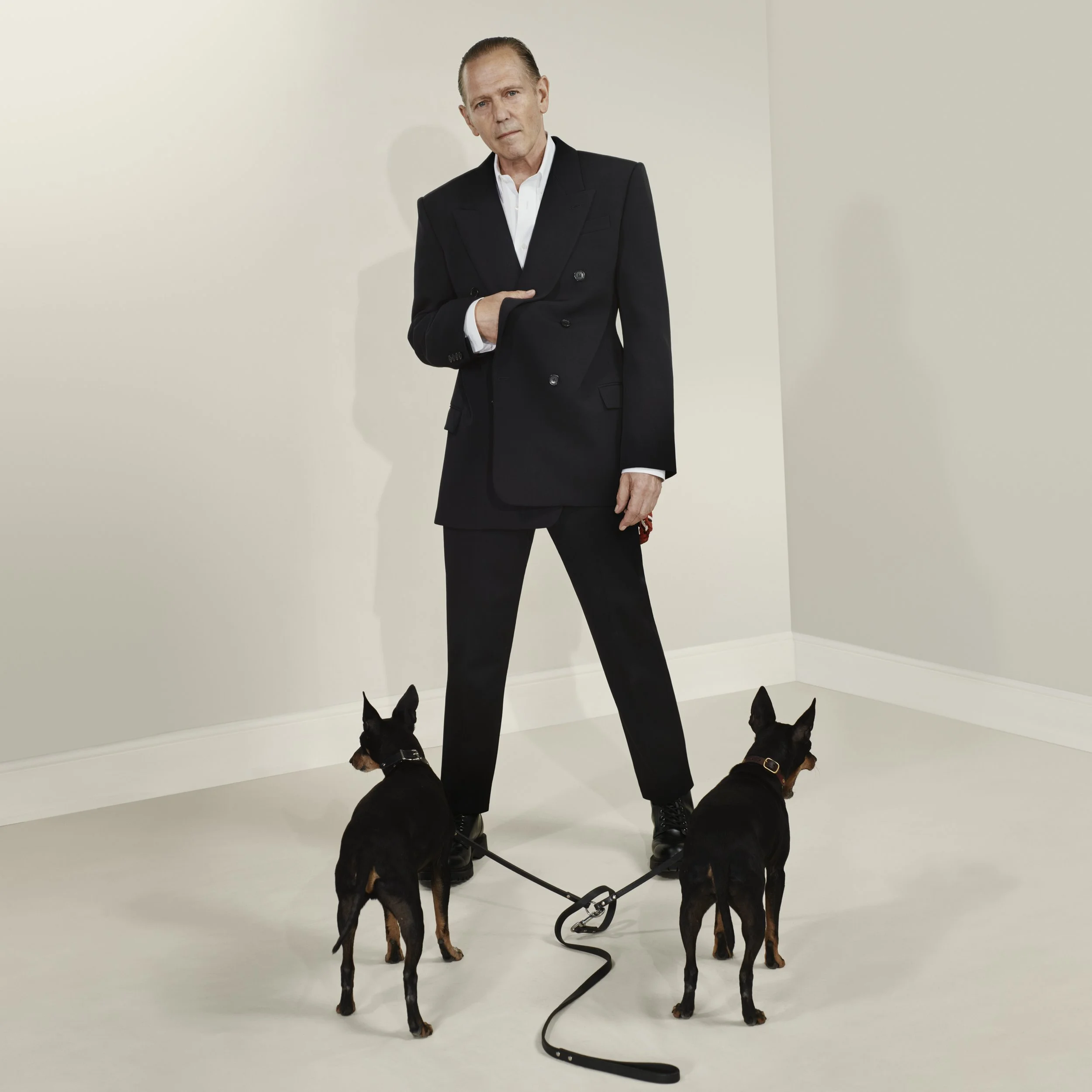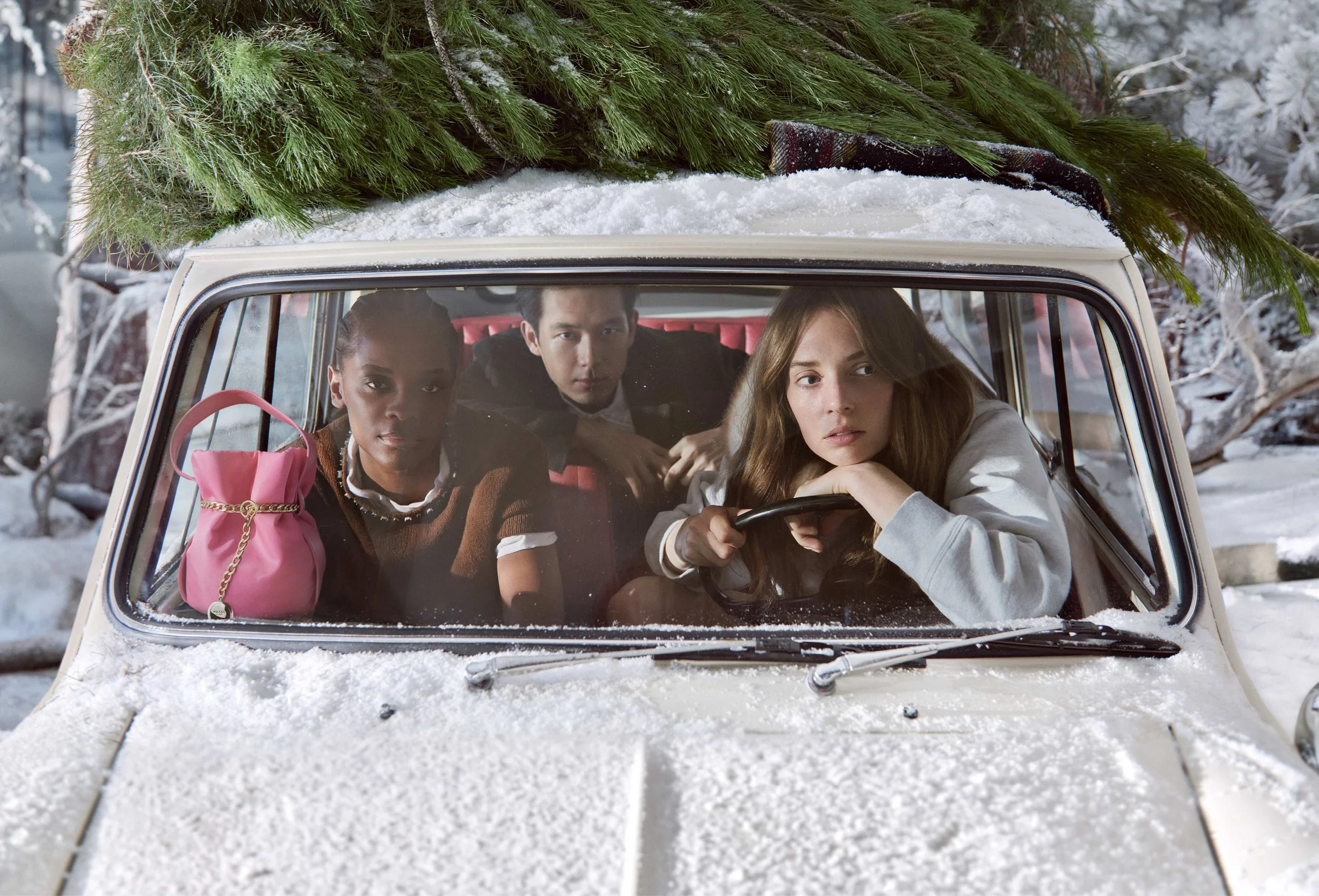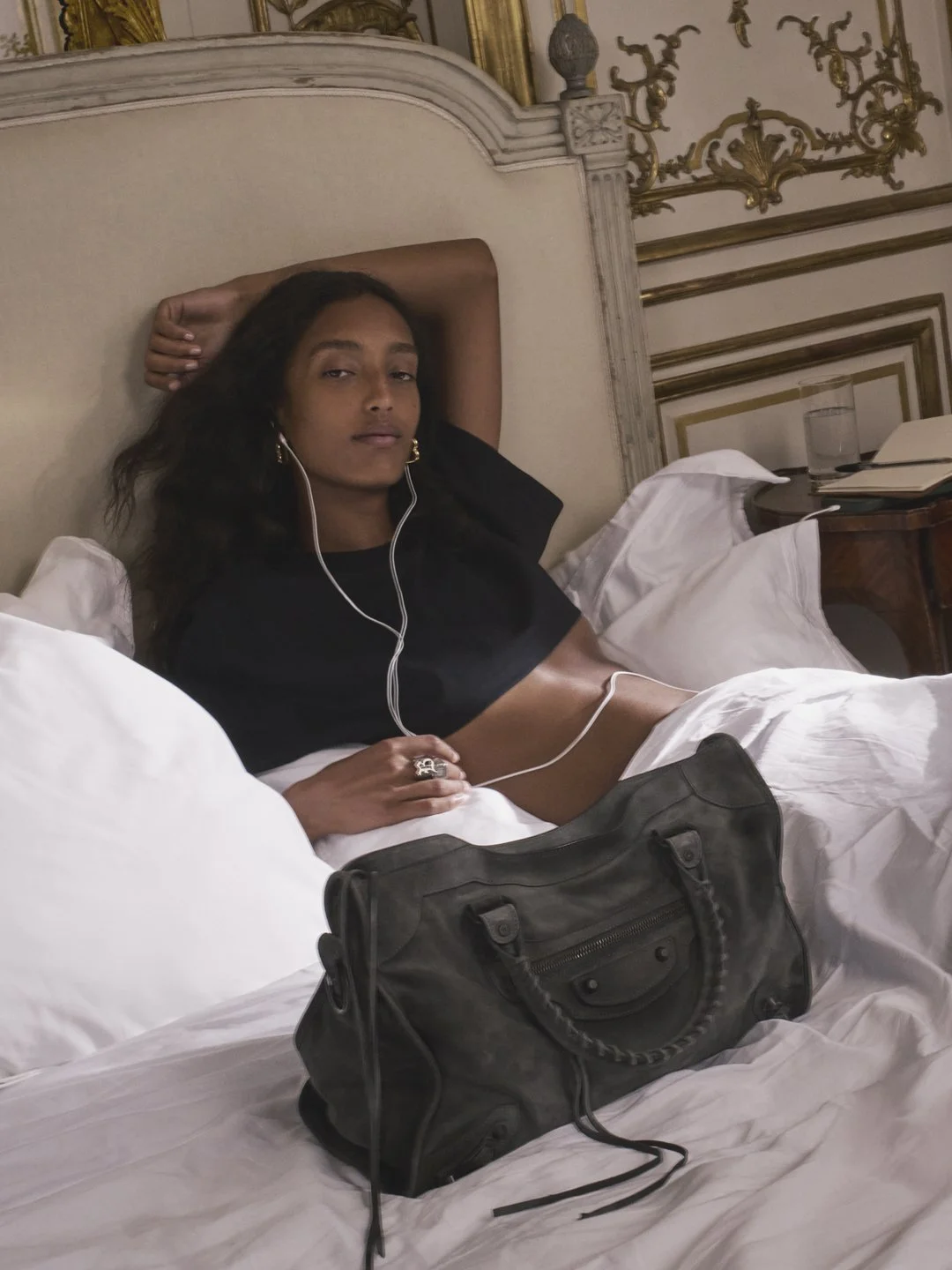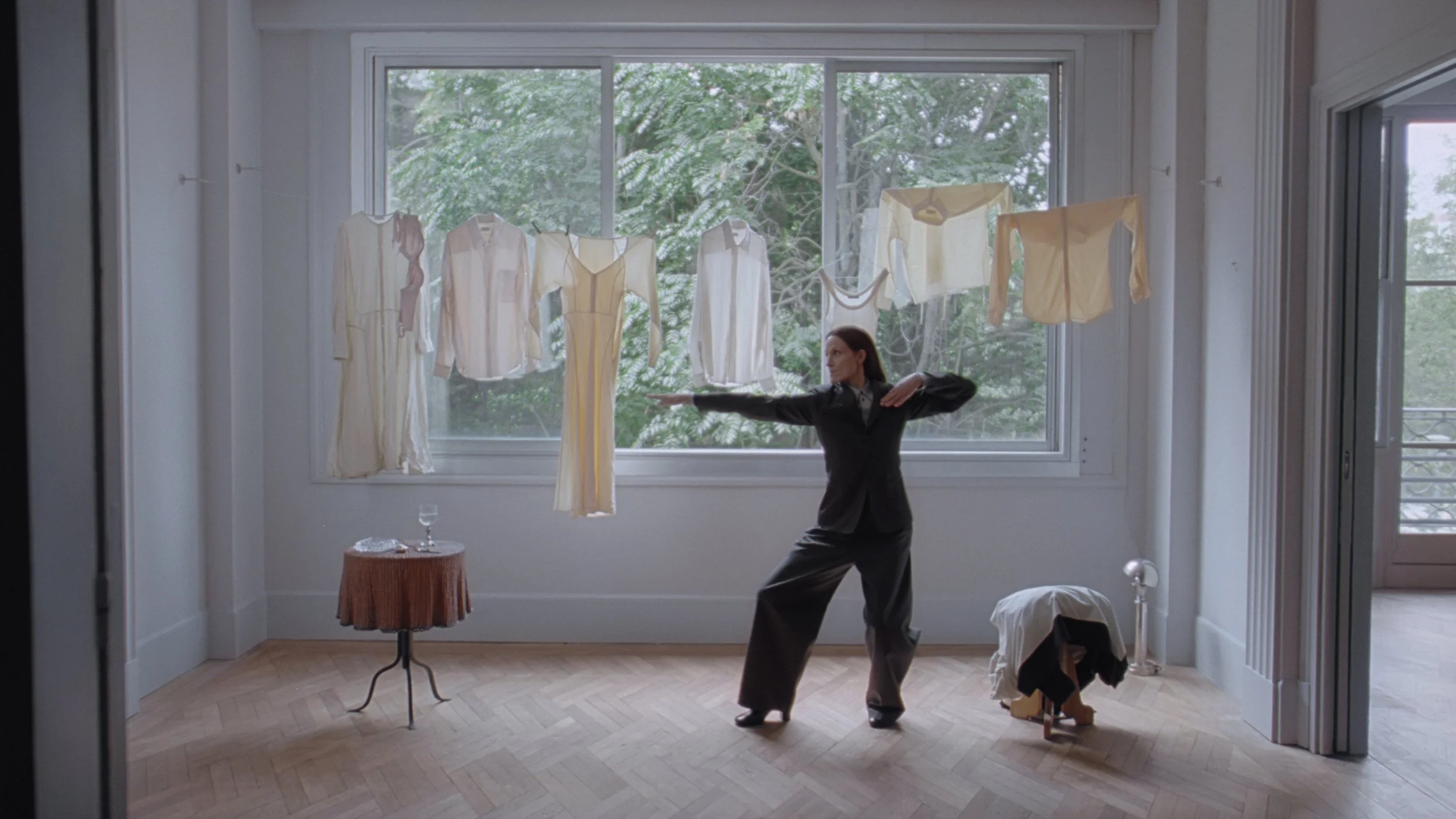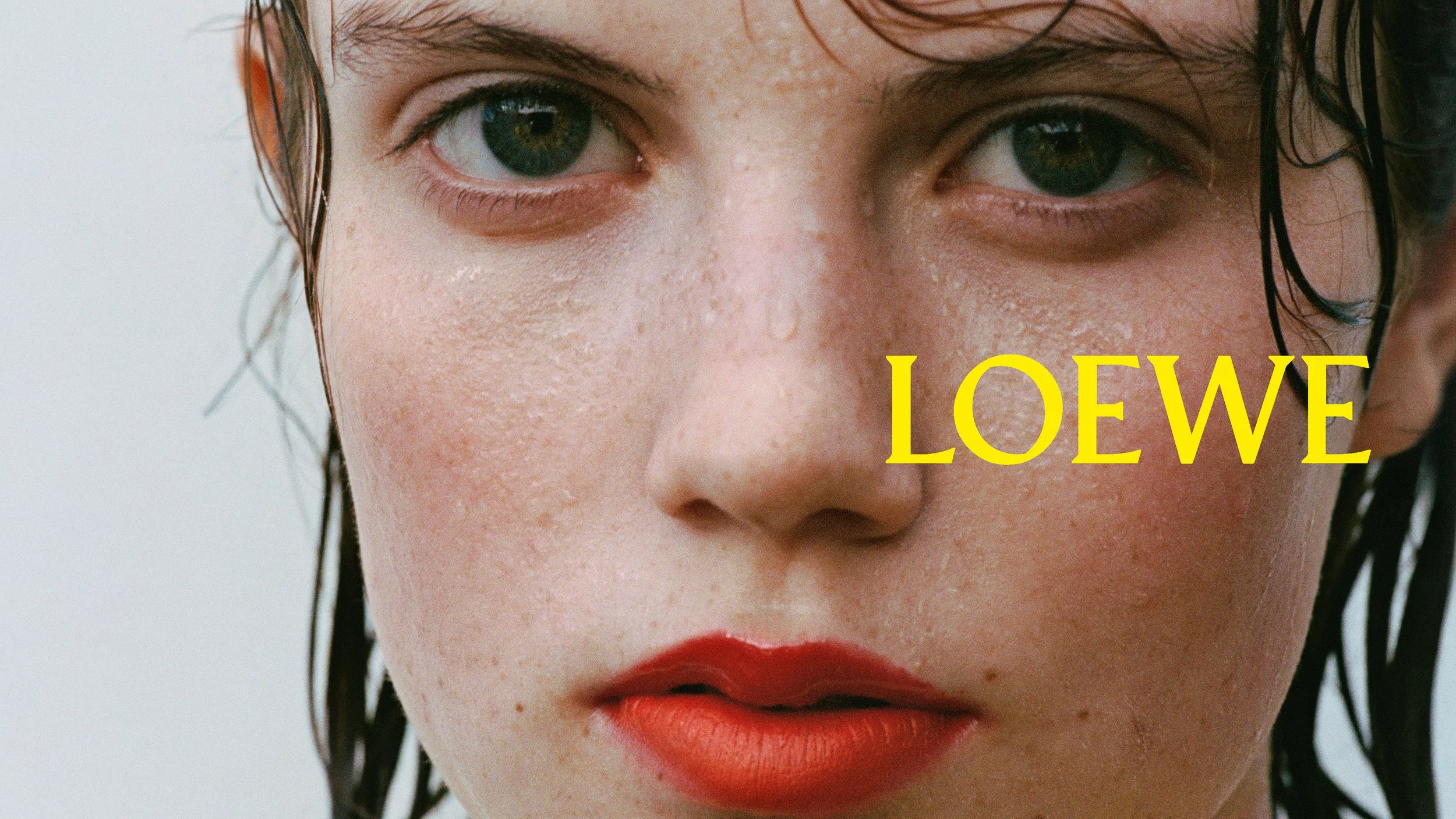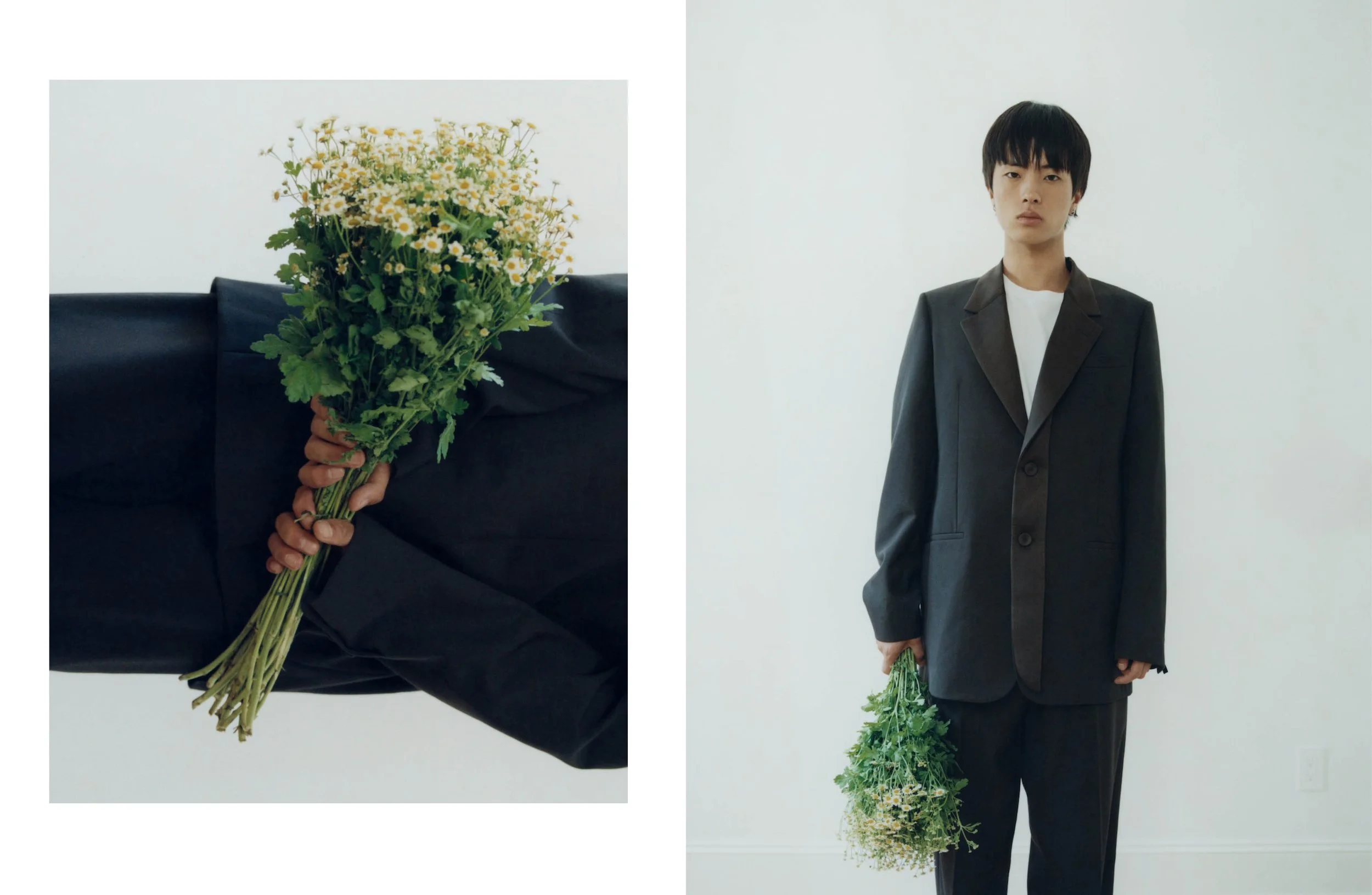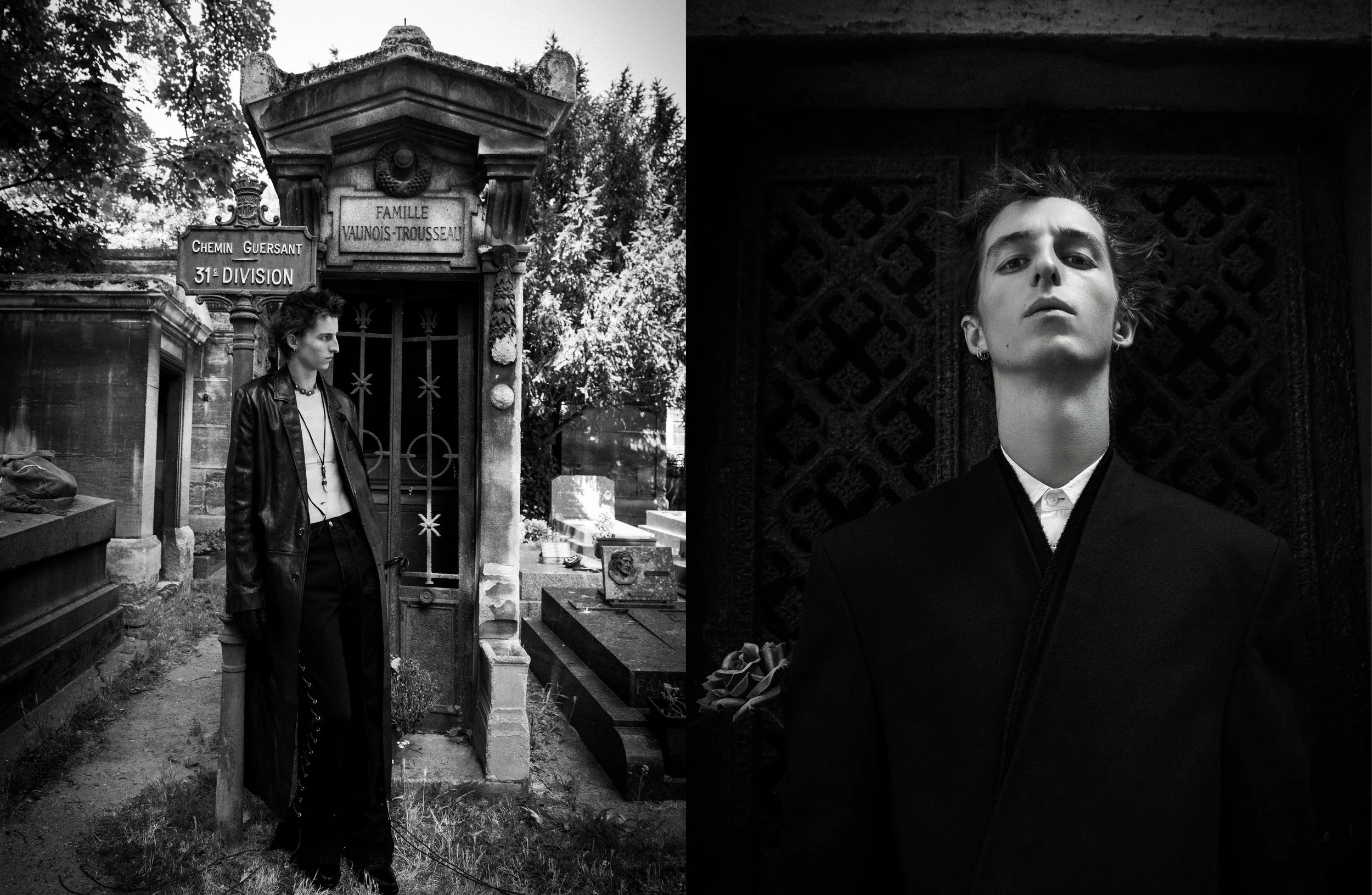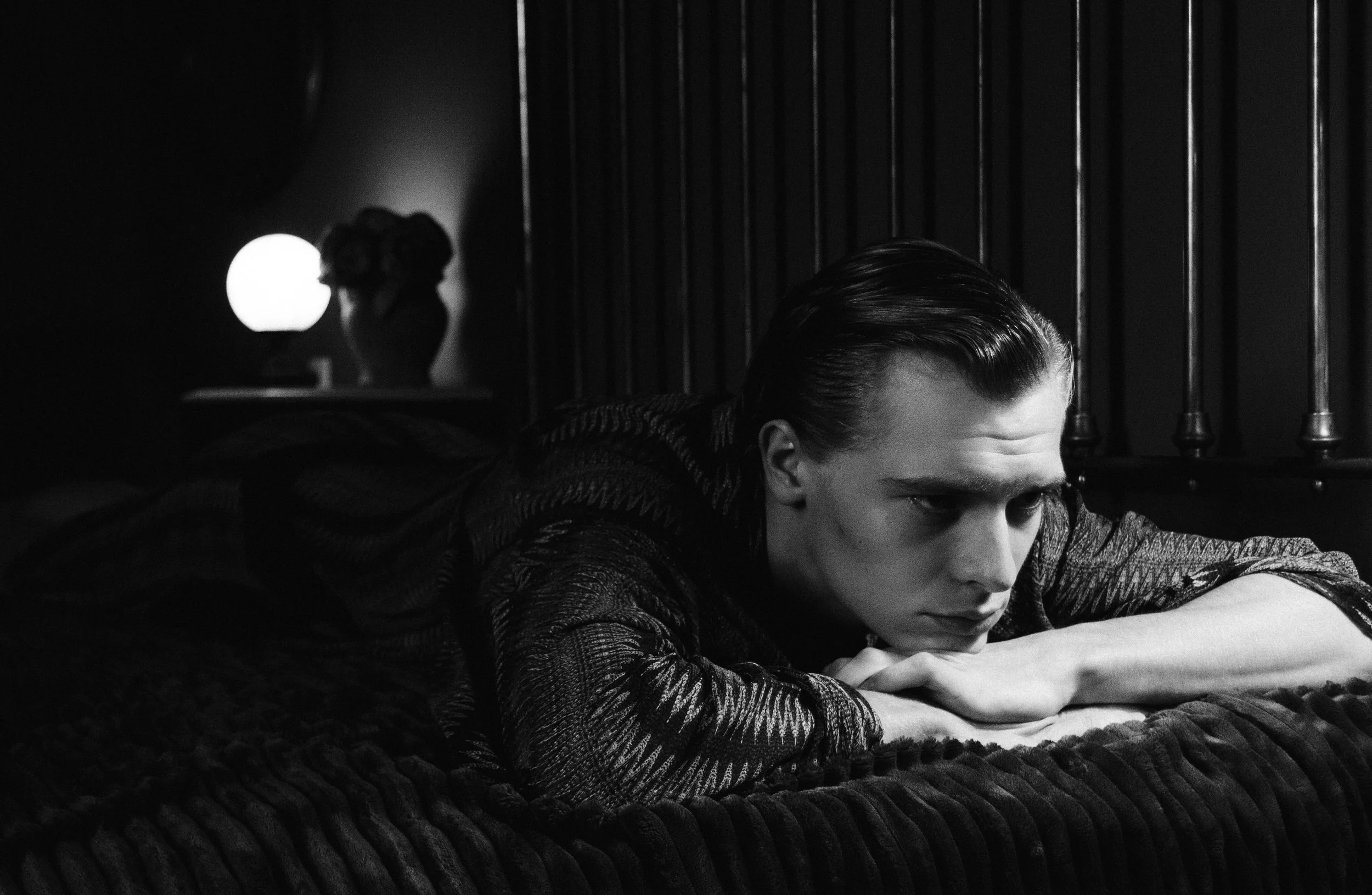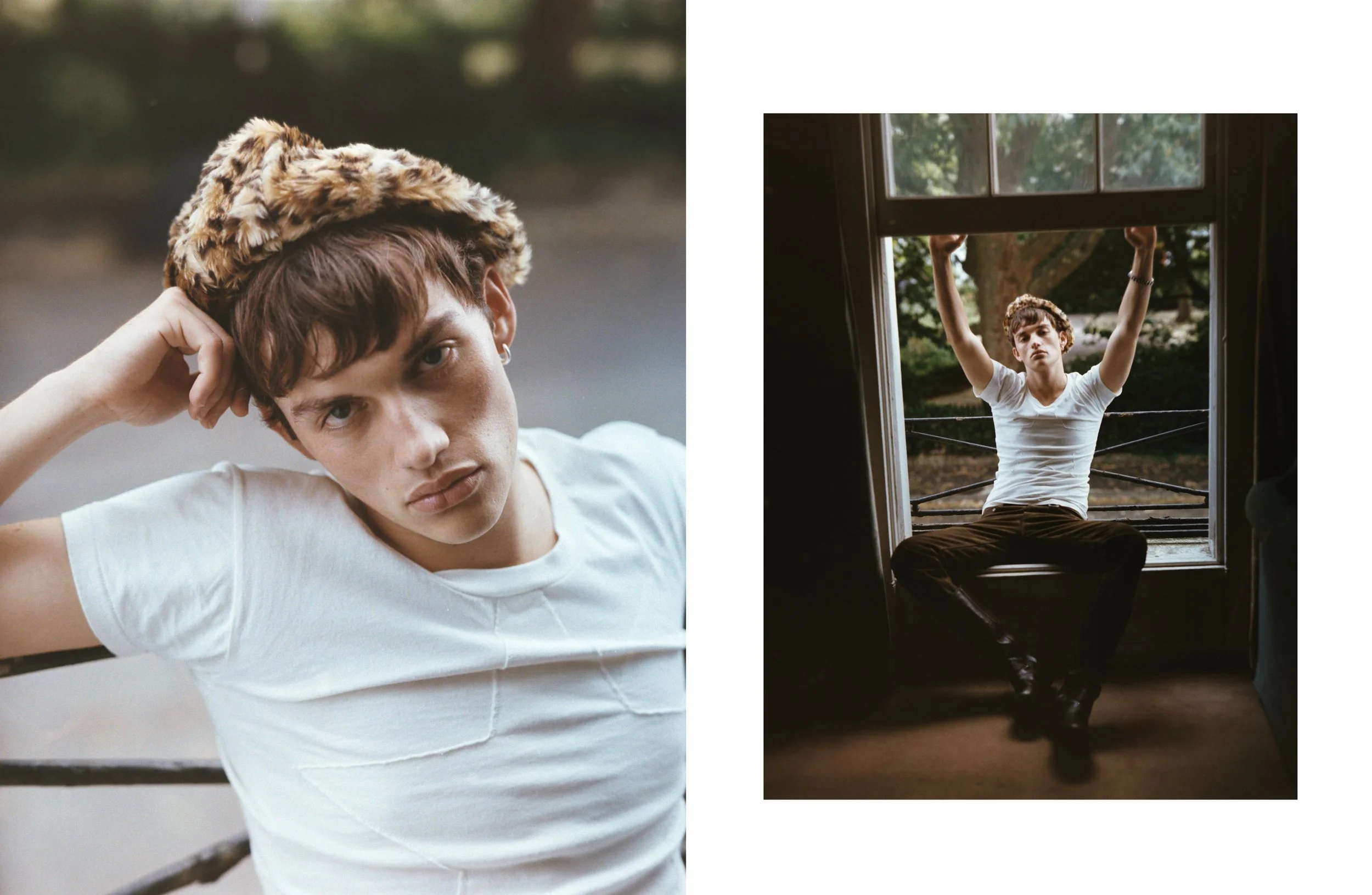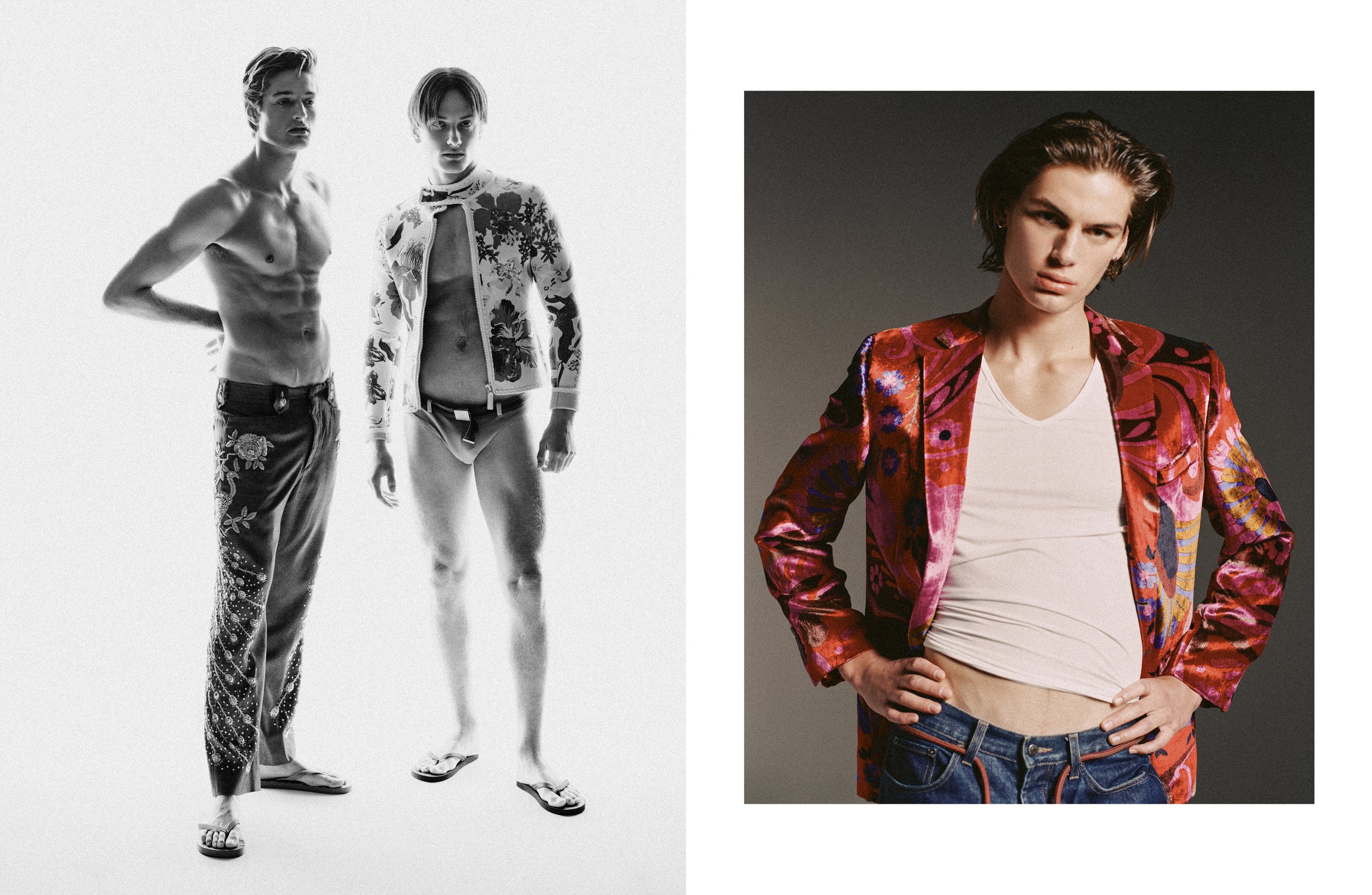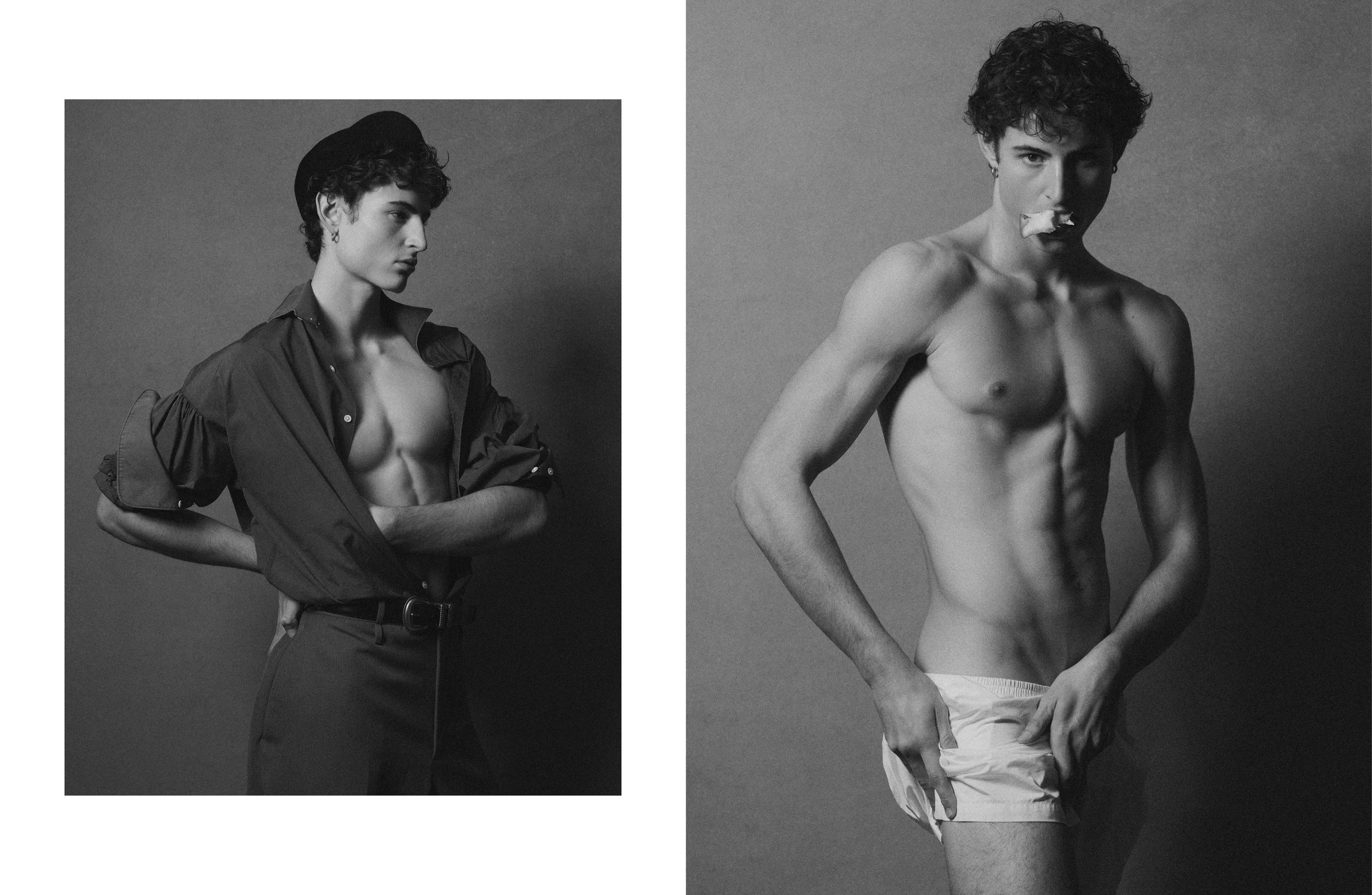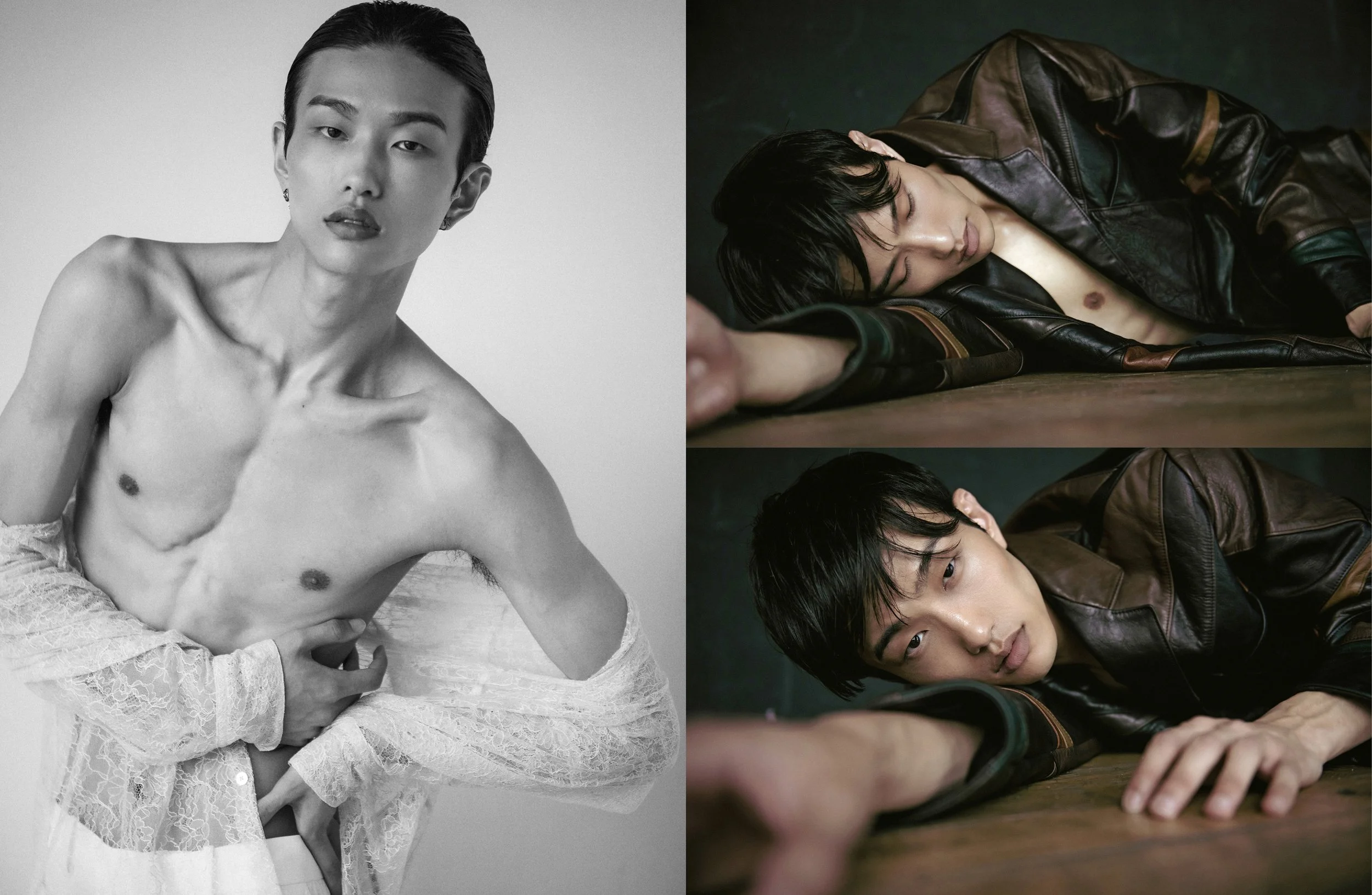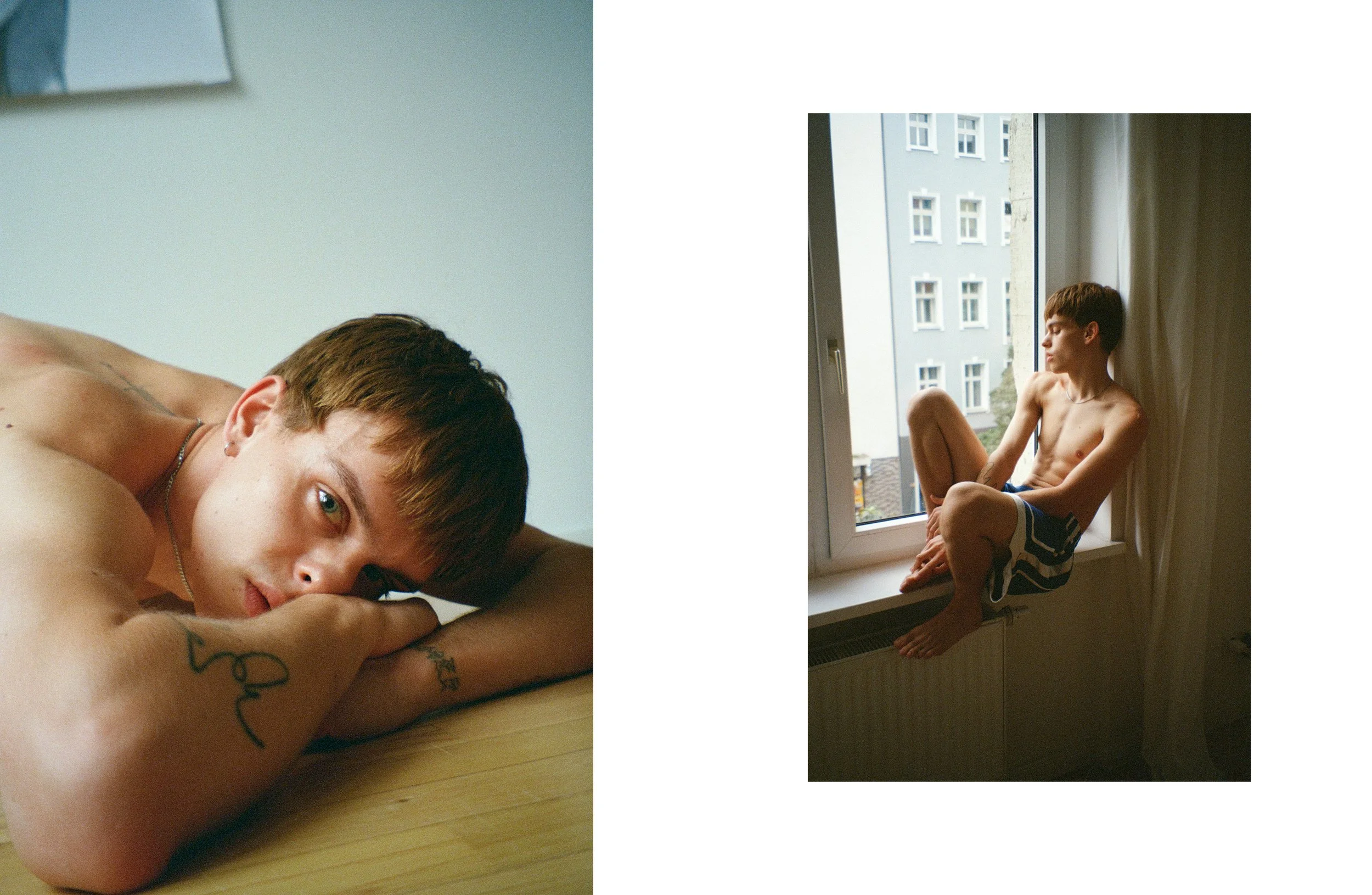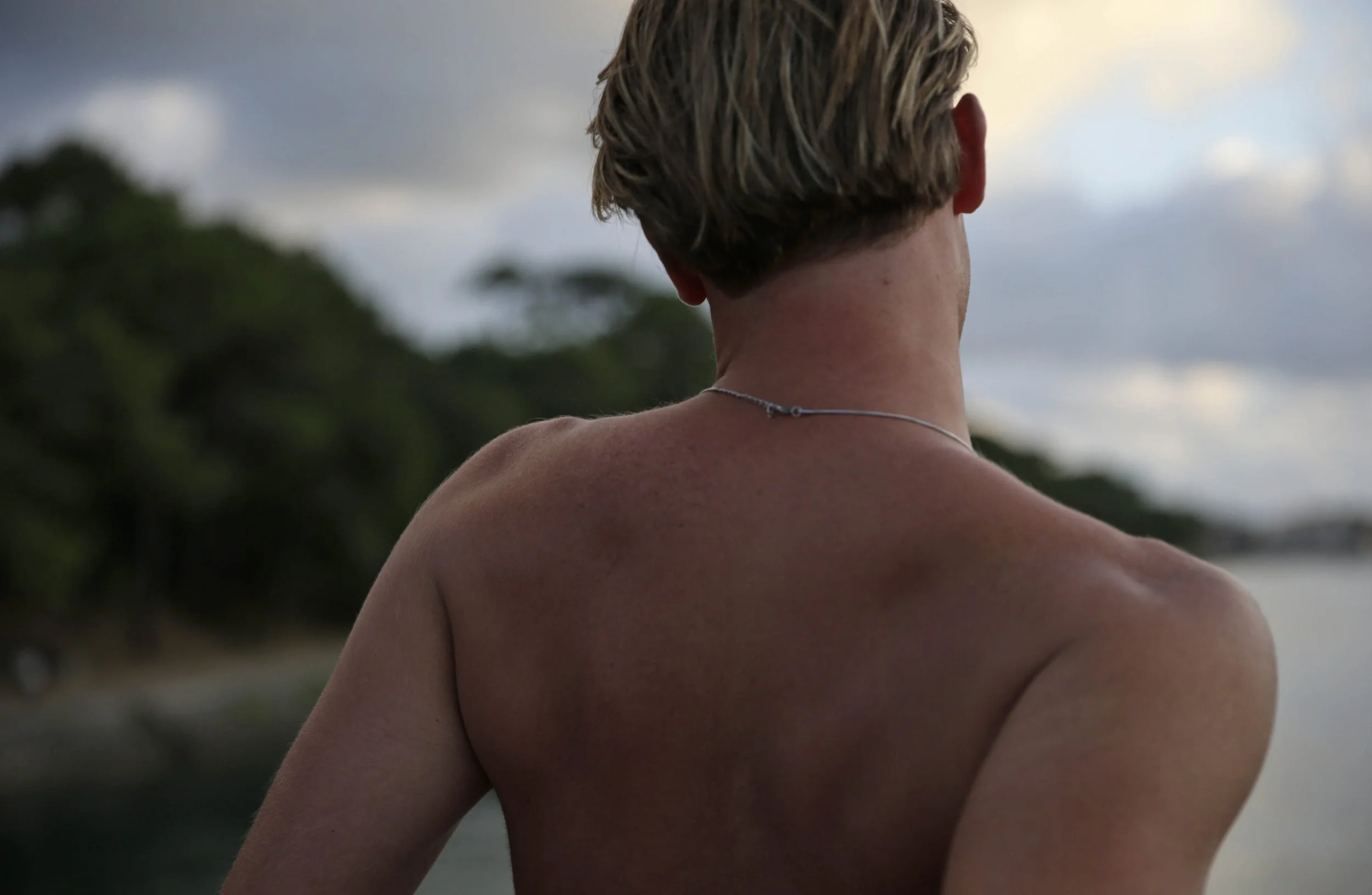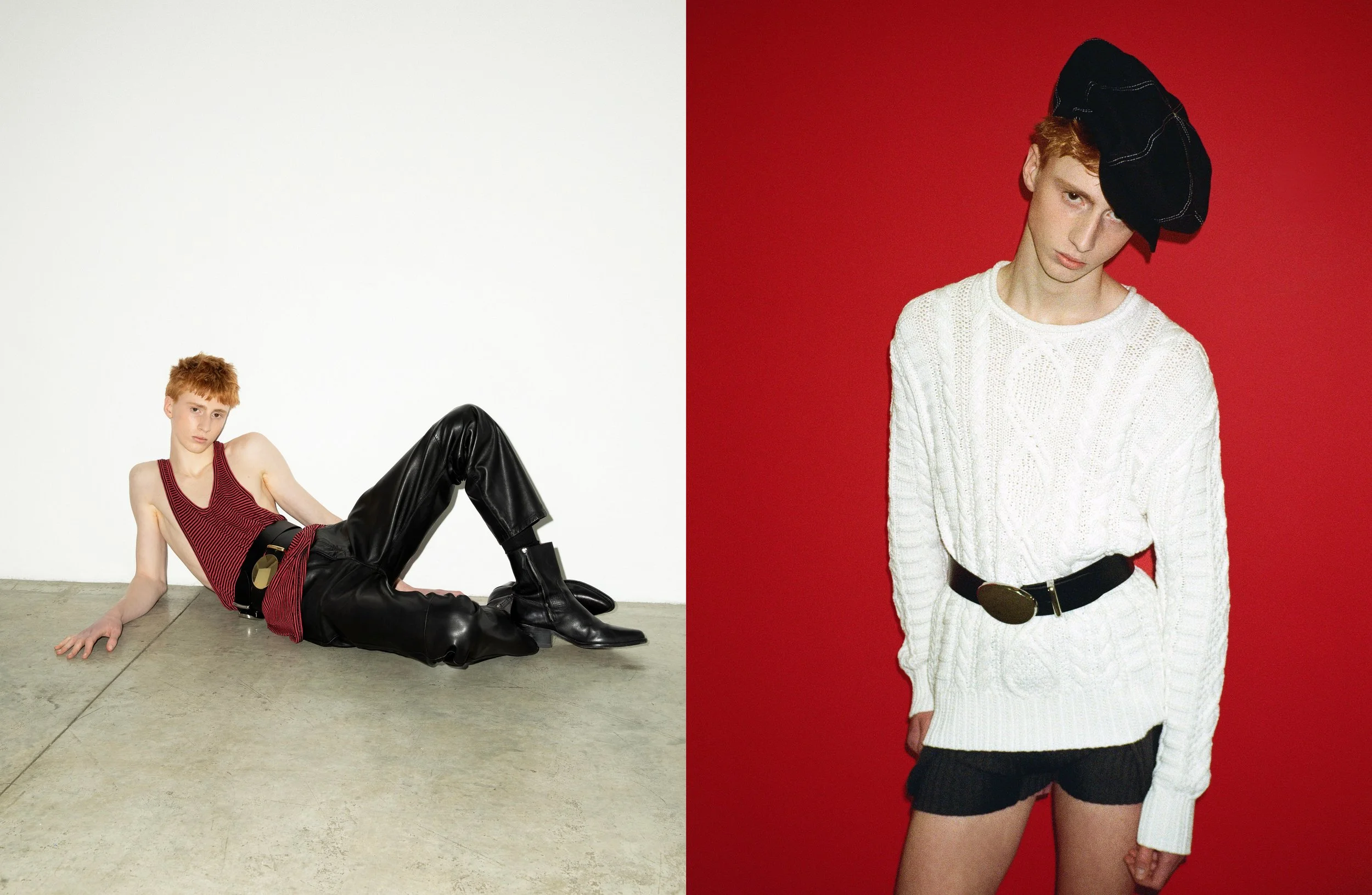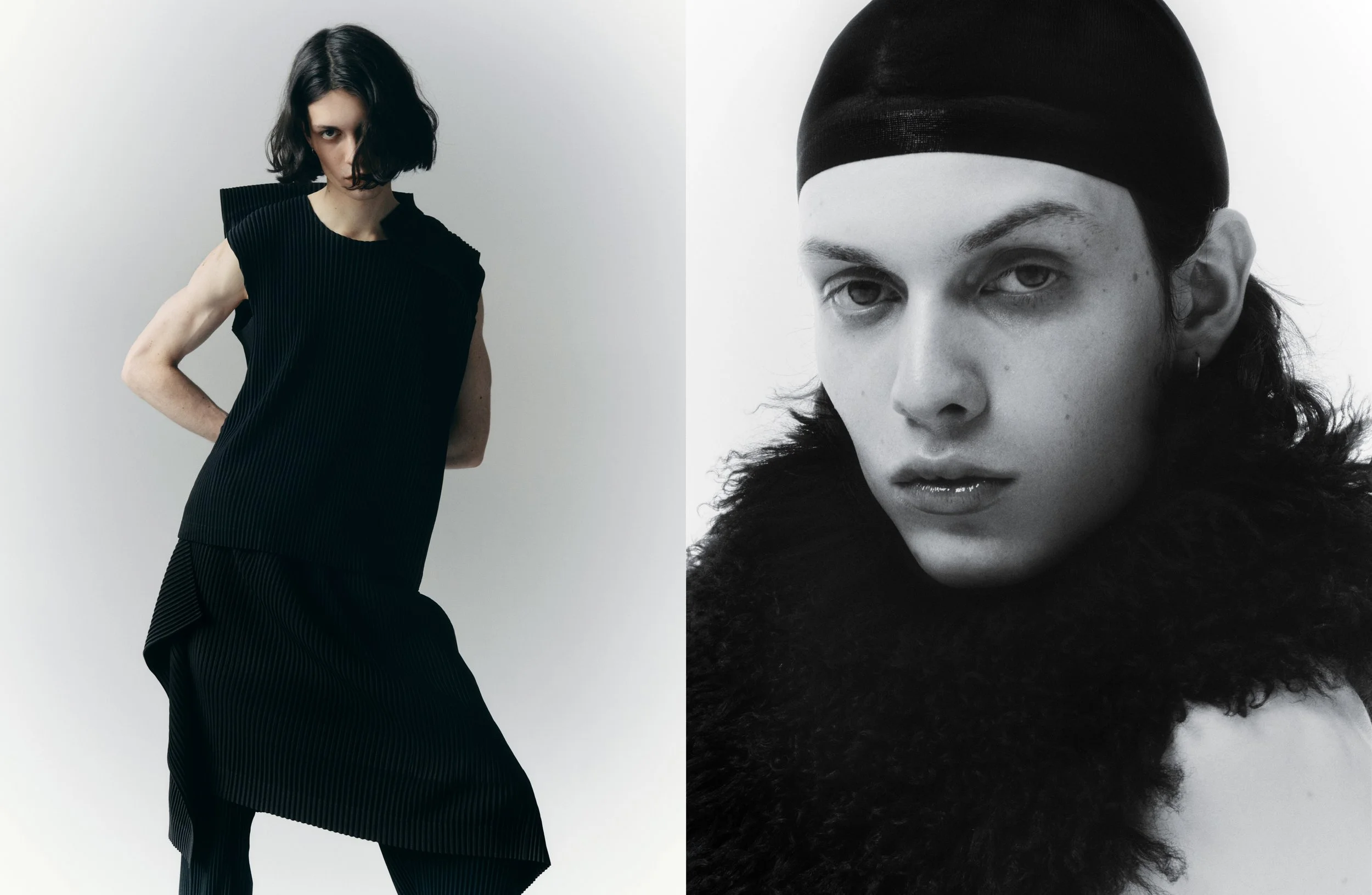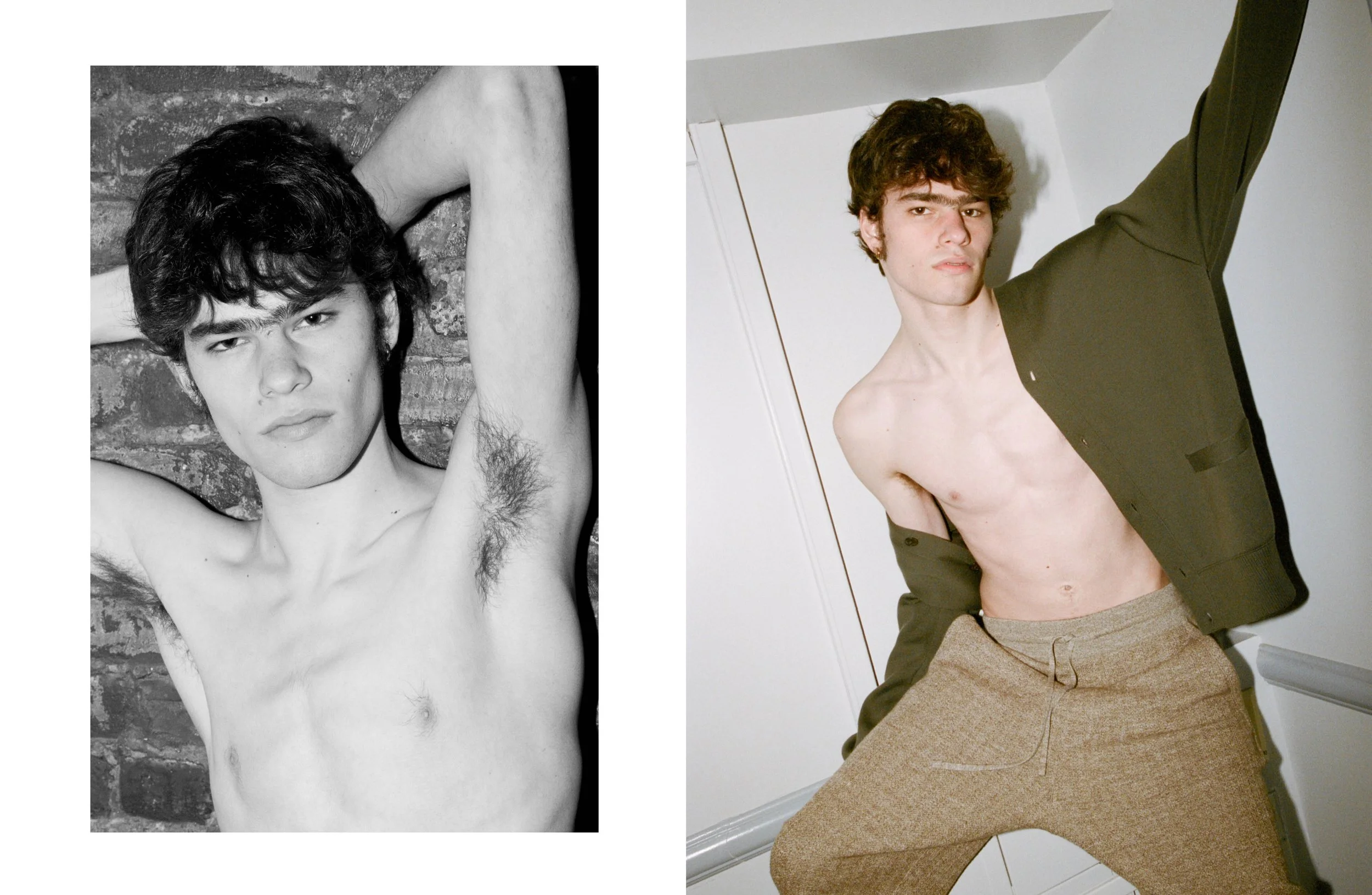YOU KNOW HIS FACE. JASON ISAACS IS THE BRITISH ACTOR WHOSE CHAMELEONIC ABILITY TO DISAPPEAR INTO ONE COMPLEX CHARACTER AFTER ANOTHER HAS BROUGHT US LUCIUS MALFOY IN THE HARRY POTTER FILMS, RUTHLESS REDCOAT COLONEL WILLIAM TAVINGTON IN THE PATRIOT, OR HOLLYWOOD ICON, CARY GRANT, IN THE TV SERIES ARCHIE. FOR HIS NEXT TURN, ISAACS PLAYS TROUBLED HOLIDAYMAKER TIMOTHY RATLIFF IN THE THIRD SEASON OF THE WHITE LOTUS – PROVING HE’S NOT ONE TO BE PIGEONHOLED, TRANSFORMING STORIES WITH HIS UNDIMMED PLEASURE IN UNEXPLORED TERRITORY.
Left Jacket and pants Dior Men, cardigan Turnbull&Asser, shoes Fendi, brooch Boucheron
Right Full look Zegna
Hi Jason, how are you today?
Wondering how the hell to talk about something without talking about it.
No spoilers here, but will this third season of The White Lotus be more of the same madcap plots and messy, outrageous characters we’re used to?
Mike White’s too clever to serve up more of anything.
Well, as the next holidaymaker to check in, what can you tell us about your character Timothy Ratliff – or is he even a guest, perhaps a local…a villain…a love interest!?
All the above. Or maybe none. Here’s the dilemma: like all my friends and all the fans who are desperate for spoilers, you don’t actually want to know. What you really want – or ought to – is to let Mike reel you in like the storytelling maestro he is until the hook’s so deep inside you that you’re thrashing around in agony and ecstasy in his twisted grasp praying for, yet dreading, the end credits of the final episode. So that’s how much I’ll tell you. You’re welcome.
Left Jacket Emporio Armani, pants and shoes Prada, jewellery Cartier
Right Blazer, pants and shoes Paul Smith, coat Brioni, jewellery Cartier, watch Omega
Thank you. What was the most challenging thing about playing your character?
Tim’s going through some monstrous things that he can’t share with anyone, so there’s a lot of acting with no words for me as his world implodes and explodes. Massive drama, but all going on between my ears and behind the eyes and did I mention no words? I love words. That, and the fact that half of the time it was so hot my fillings were melting.
Who did you feel you had the most chemistry with on the set?
I loved doing scenes with my kids. I’m a dad to Patrick Schwarzenegger, Sam Nivola and Sarah Catherine Hook in the show. Quite simply and sickeningly, adoring them on-screen was easy as we felt like a family off-screen as well. As the months went by, I transitioned from a quasi-parental role to more of an idiot friend as it dawned on them that they were the grown-ups in the relationship.
Jacket and pants Dior Men, cardigan Turnbull&Asser, shoes Fendi, brooch Boucheron
You mentioned the heat during filming in Thailand – how was it being there for such an extended period and how much did you work?
There are six meaty storylines, I think, maybe more, so I worked about a sixth of the seven months that I was there. I’ve been on location for longer – Peter Pan was 14 months, for instance – but I’ve never had that much time off. At the risk of causing mass projectile vomiting from the readers, when I first got there, I was living the real White Lotus lifestyle in an absurdly opulent private villa with a private pool and an honest-to-God butler. It was not only lonely but vacuous and obscene – like eating only desserts and caviar every day. A gilded Groundhog Day. Once I’d ticked off all the clichés – massage, yoga and massive overeating - I was desperate to get out and see what real Thailand was like and what real Thai people who weren’t in uniform and trained for hospitality were like. Luckily, we were reeling from becoming new empty nesters, so my wife Emma came out after a while and stayed, which she’d never done before, and we used the free time to see all around the country and behind the tourist curtain. Some of it is really painful to witness – the heartbreaking sex and slave trade and the grinding poverty that’s hiding in plain sight – and some of it is beautiful and simple, particularly the gentleness of the Thai people which, surprisingly, wasn’t only to be found in the hotels, but everywhere, from the wilds of the jungle to the poorest of fishing villages.
Speaking of beautiful locations; you’re playing Moth Winn in the upcoming movie The Salt Path shot around the Southwest Coast path in the UK. What did you learn about endurance, love, and the human spirit playing this real-life person?
Moth’s quite literally the most positive and life-affirming human being I’ve ever met – he’s a Staffordshire Santa. After our first Zoom, I watched it back to try and break down his unusual accent. We were roaring with laughter the whole conversation, but, listening back in the quiet, I realised that as he’d been describing the horror of losing his mind and the catalogue of humiliations that his neuro-degenerative condition had created, he didn’t want me to feel uncomfortable, so he made fun of it all. “Oh, you’re gonna laugh at this, Jason,” he’d say, guffawing, “When I go to the bathroom, sometimes, I’ll have to…” I don’t know that I ever really learn from anything, but, like Rob Reiner’s mum in When Harry Met Sally, I’ll definitely have what he’s having.
Blazer and pants Paul Smith, coat Brioni, jewellery Cartier, watch Omega
Would you agree you’ve got to tap into the humanity of each character that you play, before anything else?
Talking about acting mostly seems pointless to me. Like dancing about pensions. There are technical things you can describe – hitting marks, learning to sword fight, lens sizes maybe – but becoming another person, with their thoughts, their needs, their inner rhythms… It’s all so intangible and messily arrived at. Plus, everyone comes at every part differently every time anyway. With Tim [ Isaacs’ character in The White Lotus], I wanted to get the accent right (Durham, North Carolina…I hope!) and wanted him to look and feel and move like a fat cat – literally a man bloated with status, money and certainty. With other characters, sometimes it’s an old injury or a phrase they repeat or a fear of their old stutter resurfacing. It could be anything. The whole process of finding those anchor points depends, firstly, obviously, on the script, and then whatever sticks from a whole load of inefficient splashing around with real people in the real world – in music, books, dreams, overheard conversations or half-remembered shadows on the subway. It’s a simple job, just sometimes hard to do, be another person in another situation. Who thinks, like everybody does, that they’re right. You just have to know why they think that.
I’m interested in the physicality that you bring to a role too, like for example, having to translate the physical as well as emotional exertions of Moth’s symptoms on screen – his limp, his tremors. Is physicality something that you always consider with a character?
Not always. It’s definitely nice to find something – a walk, or a way of standing – police and military, for instance, always stand with their legs straight, symmetrically, never resting on one hip – but, for me, that’s less about what an audience will see and more about me looking for something, anything, that’s a trigger for me to trick my imagination into feeling like someone else. Moth had huge problems with his body, sure, since, at the start of our film, it was all shut down for him and caused him such pain – he couldn’t raise one of his legs or use his left arm or fingers at all, but for him, it was losing his memory and focus and ability to take control or protect his children that crippled him more. The shame. Though it was impossible to forget about the physicality – some days we’d arrive at yet another breath-taking location and they’d point and go, “You’ll be climbing up and down that today,” and we’d be at the base of a steep boulder-covered slope that I couldn’t navigate even without a heavy backpack and using my two good legs. “Are you fucking kidding me? Moth could never have got up there,” I’d say, “It’s not gonna be believable!” “But this is the actual location,” they’d say. “He did.”
I’m just thinking about the fact that you were a pro skateboarder when you were younger. Balance, concentration, fitness, creativity – that was setting you up for acting really?
It was, absolutely, but not in a physical way. I was one of the original band of skaters at the South Bank, under the Royal Festival Hall. It was a rough crowd, and I didn’t want to stick out. Similarly, when I went to university, I was suddenly in a crowd of people who lived in Chelsea and sounded like nobody I’d ever met or even seen on TV. A week later, I sounded just like them too. Skateboarding was just one more episode of code-switching that prepared me for a life of walking in other people’s shoes.
Full look Maison Margiela
You’ve said in the past that you don’t like referring to acting as a “craft”. You can make progress and improve though, so what would you say has driven you over the years? Determination? Or maybe the thought with each role that there must be an answer somewhere, and you’ve got to find it.
No idea. Not being fired on day one and never working again, I suspect. Plus, I have no other skills. Fear of failure drives a lot of powerful creativity, so I enjoy it a little more now – the energising feeling that if I don’t pull something out of the bag, I’m going to be found out. But drive? Actors have no agency – we don’t create the work until we step behind the camera and write and produce, so drive isn’t a useful quality. The most important quality to have, by far, is luck. More important than skill or drive or anything. I’ve had a few unbelievably lucky breaks in my working life that could so easily not have happened. The other thing that’s lucky, I suppose, is that I still get just as passionate and bothered and exhilarated by all of it. Just as much doing a cameo in a no-budget indie as on a studio epic. Just as much in a voiceover. It’s almost embarrassing how much I can care and obsess, but at least I’m older than most of the directors nowadays, so they think it’s quaint as opposed to irritating. I hope.
I imagine you’re given lots of choices for roles. What’s your qualification for accepting a part? Does something really need to move you, get you in the gut, and feel like something you need to pay attention to?
I wish I had a consistent test for what to do. It’s the Malcolm Gladwell thing: a gut feeling, then a process of tortured rationalisations and endless discussions with agents. But I always know straight away. Not that things will be successful, but that I’ll enjoy myself and feel challenged. I turn a lot of work down that I think is fabulous, but just can’t see myself in. Sometimes I leap at parts I really fancy in things that are never going to be seen, and don’t even have the money to finish. I can live with it all, though. I’ve loved all of them, the failures often more than the successes.
Full look Zegna
You’ve worked with so many amazing directors too, whether it’s Ridley Scott, Chris Columbus, Paul Anderson or Roland Emmerich. Is there anything that you think good directors have in common? Do you think they’re all unique or is there a common factor, at least in the best experiences you’ve had?
They’re all so different and work differently, too, with each actor. The best ones are so secure in their storytelling smarts, that they’re open to collaboration and, specifically, to happy accidents and magic that happen on the day. The worst ones think they know what the scene should be before they arrive and are trying to fit the actors into some predetermined template, they worked out in the bath the night before. Two of my favourites, Zal Batmanglij and Rodrigo Garcia, who directed me in The OA and Nine Lives respectively, both gave me the same piece of wonderful, ballsy direction on day one: just before my first take on projects they had spent years writing, in answer to a question I’d just asked about the scene, they said, “I don’t know. You know this guy better than me. You decide.” That’s such generous, smart directing – giving ownership to the actors. I saw David Yates do that with the kids, too, on the Potters, empowering them. A lovely man.
What about stories you would like to produce/direct yourself, are you working on anything?
Yep. And superstitious too.
What about the next big Bond villain… you know you want to!
That’s what they should call it. A hark back to the great double-entendre-laden Roger Moore era: “You Know You Want To!”
…
Discover the full story in our upcoming SS25 Issue - release end March 25.
Interview by Kate Lawson
Photography by John Armour
Fashion by Steven Huang
Casting by Imagemachine cs
Grooming by Nohelia Reyes using Dr Loretta and Sam McKnight
Photographer’s assistant Myles Bailey
Stylist’s assistant Dominik Radomski
